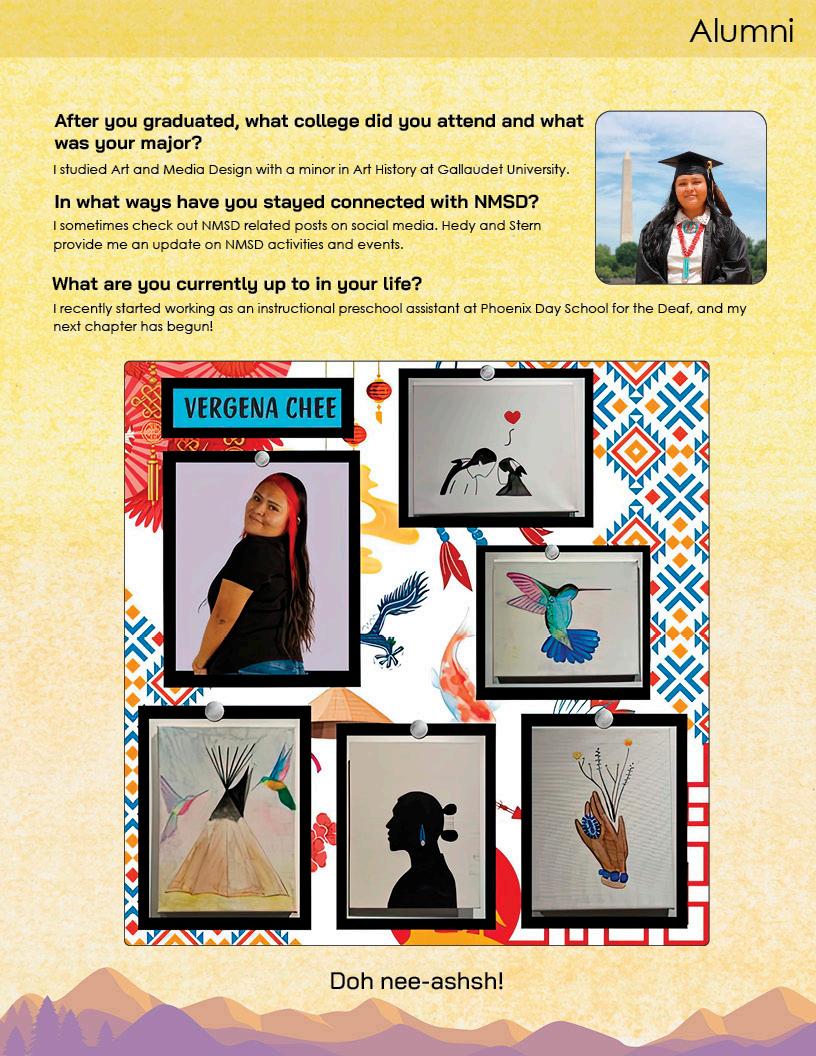








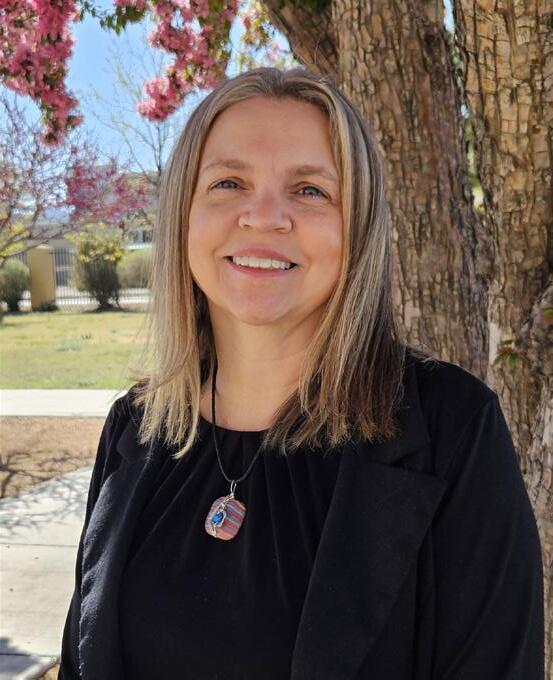
What is a School? The history of education spans thousands of years, evolving from informal knowledgesharing to the schools of today. Educating children started with oral traditions, with elders passing on skills, survival tactics, and cultural values. In ancient civilizations like Mesopotamia and Egypt, formal education began to emerge with a focus on training scribes and religious leaders.
In ancient China, education was linked to Confucianism, emphasizing moral character, social order, and governance. Meanwhile, in South Asia, early education was shaped by Hindu, Buddhist, and later, Islamic philosophies with a focus on philosophy and religion as well as science and mathematics. In ancient Greece, education became more philosophical, and inquiry based. Thinkers like Socrates, Plato, and Aristotle emphasized critical thinking, rhetoric, and ethics. The Middle Ages established secular schools in Europe, where religious instruction was central. Islamic Golden Age scholars made significant advancements in mathematics, medicine, and science.
The Renaissance introduced subjects like science, literature, and the arts into curriculums. Centuries later, the Industrial Revolution facilitated widespread basic education to create a skilled workforce. This led to public school systems in the 19th century, providing mass education for all children.
Throughout much of the history of education, Deaf and Hard of Hearing children have been left out. It was not until the last hundred and fifty years that D/HH received the opportunity to access instruction. The establishment of Deaf schools
and Programs across the United States allowed our children to not only learn, but to thrive with peers and teachers who could communicate directly with them.
Celebrating 139 years of service, NMSD strives to stay at the forefront in developing the concept of a “school.” We are much more than a place where students go to learn facts. We are a vibrant community where young minds are nurtured, ideas are exchanged, and values are shaped. We work to create an environment that supports intellectual growth, exploration, and preparation for the future. We are also a social and emotional landscape, a space embedded in communication that serves as a foundation for building friendships, developing resilience, and learning empathy.
Although this broadened role harkens back to ancient ideas about education, academics remain at the heart of education. Core subjects such as math, science, and language arts are essential as well as developing critical thinking, logical reasoning, and self-discipline. Mastery in these areas opens doors to higher education and career opportunities.
A school, then, is not just a building or a curriculum; it is a foundation for lifelong learning and a safe space where young individuals grow into capable, compassionate adults. In this issue of the New Mexico Progress, you will see how the heart of NMSD revolves around our people, our students, teachers, and staff working together to create a school. I hope you enjoy this issue, a brief snapshot of how we define “School” here at NMSD.
Warmly,

Dr. Jennifer Herbold, Superintendent






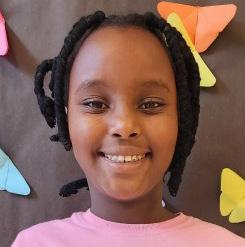
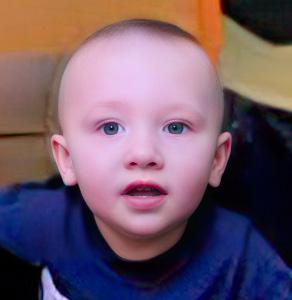


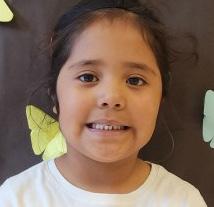
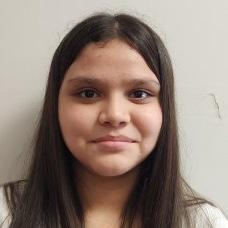

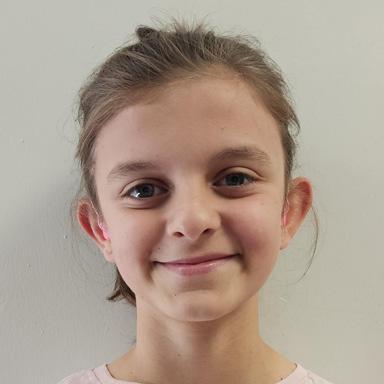
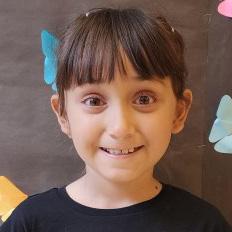

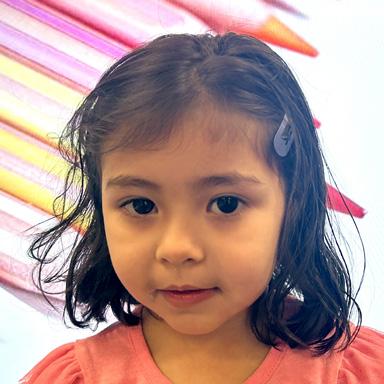

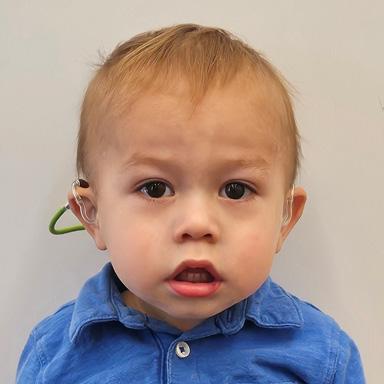





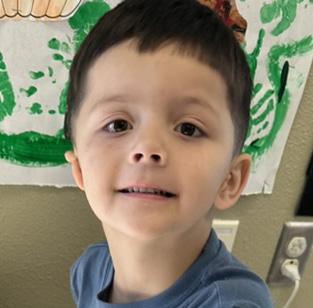
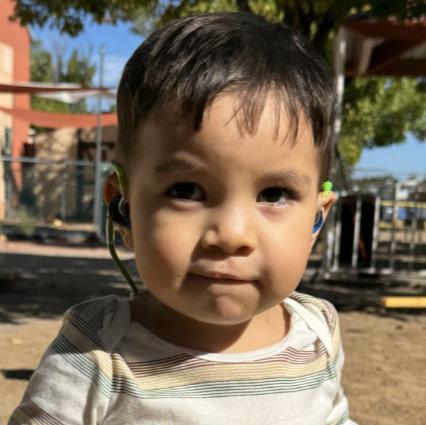


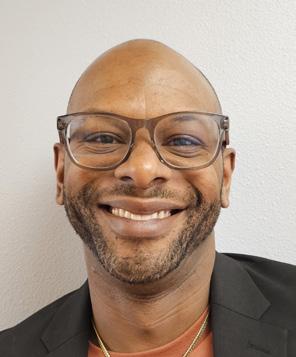


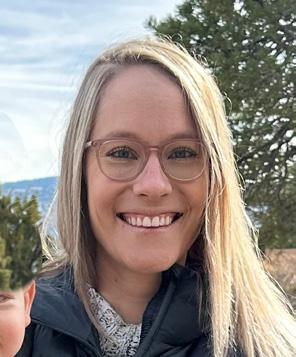
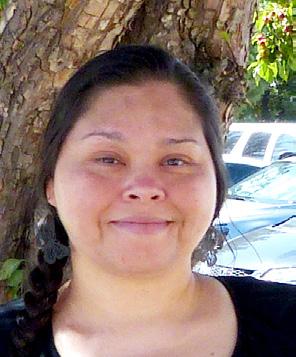
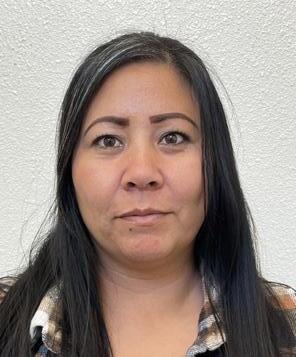

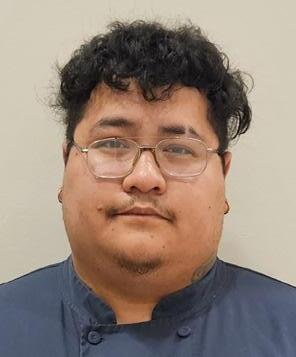

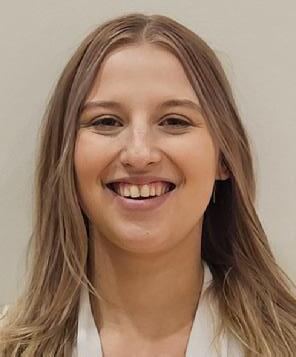
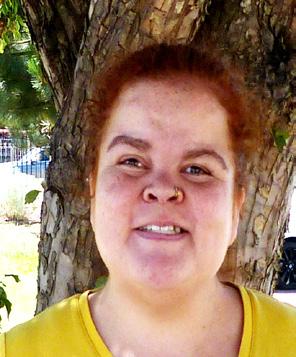
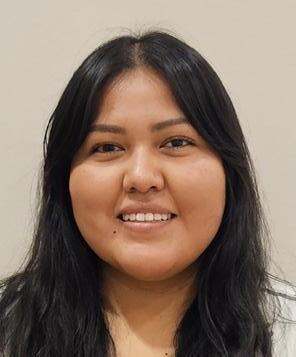
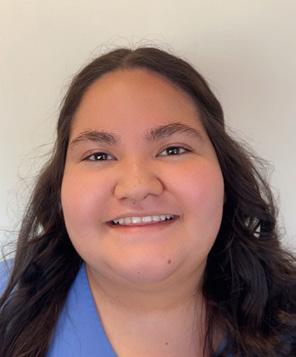
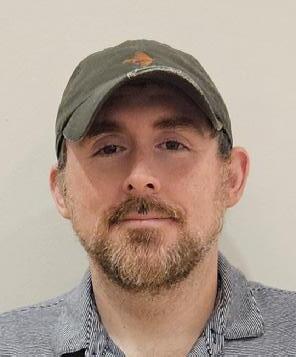


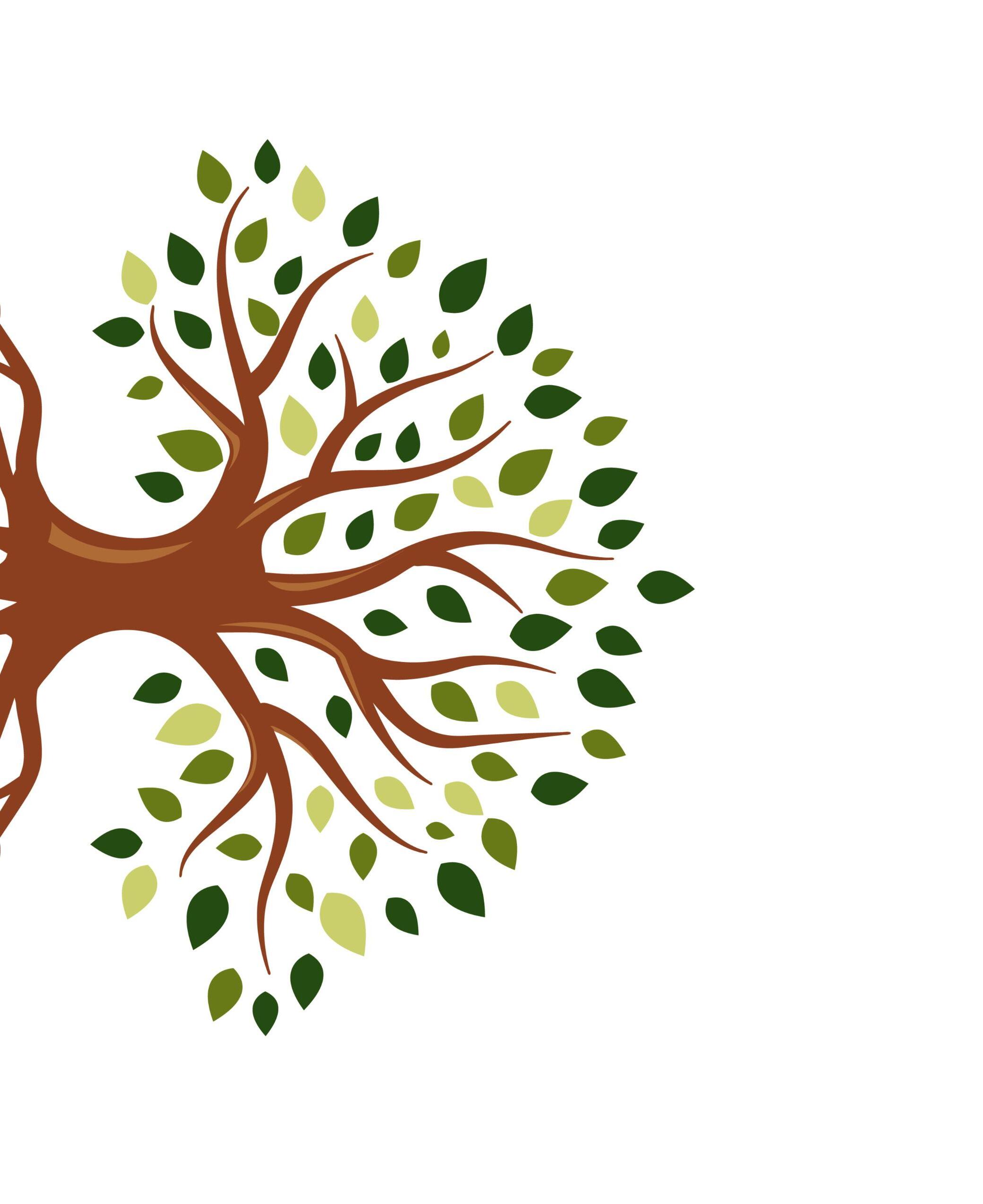
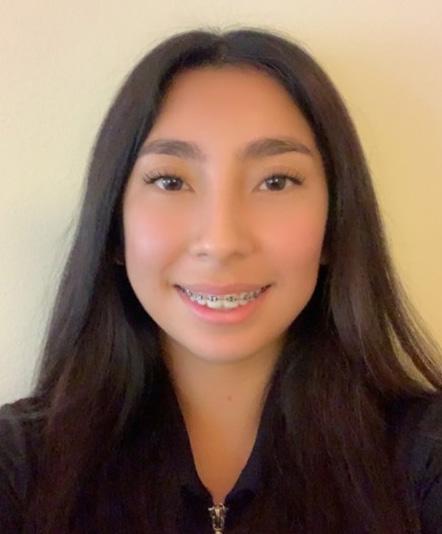


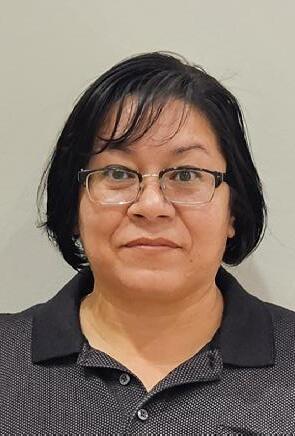
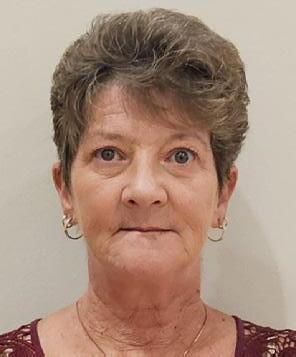





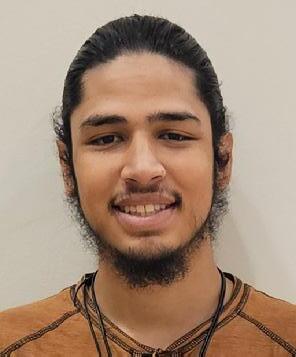
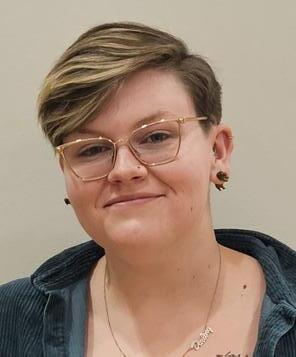

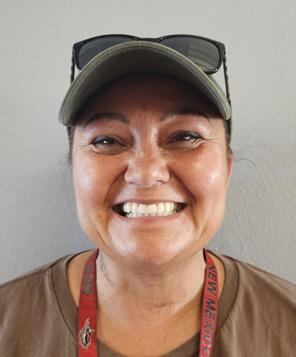


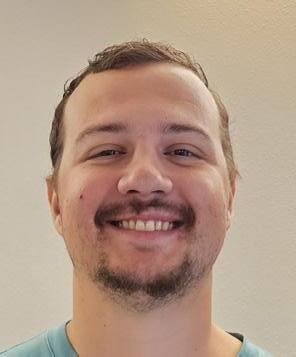

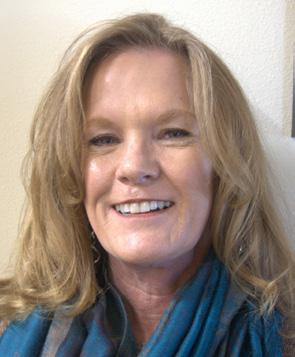
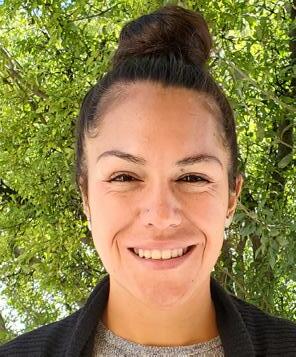
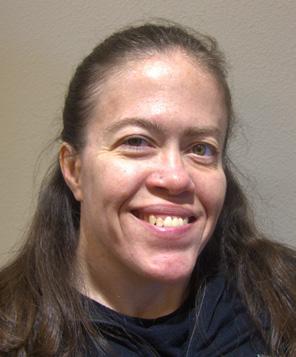
NOT SHOWN:
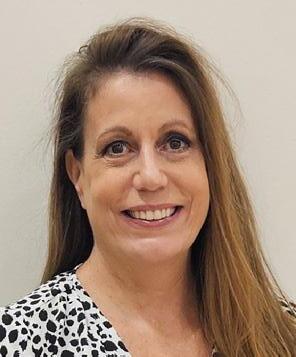
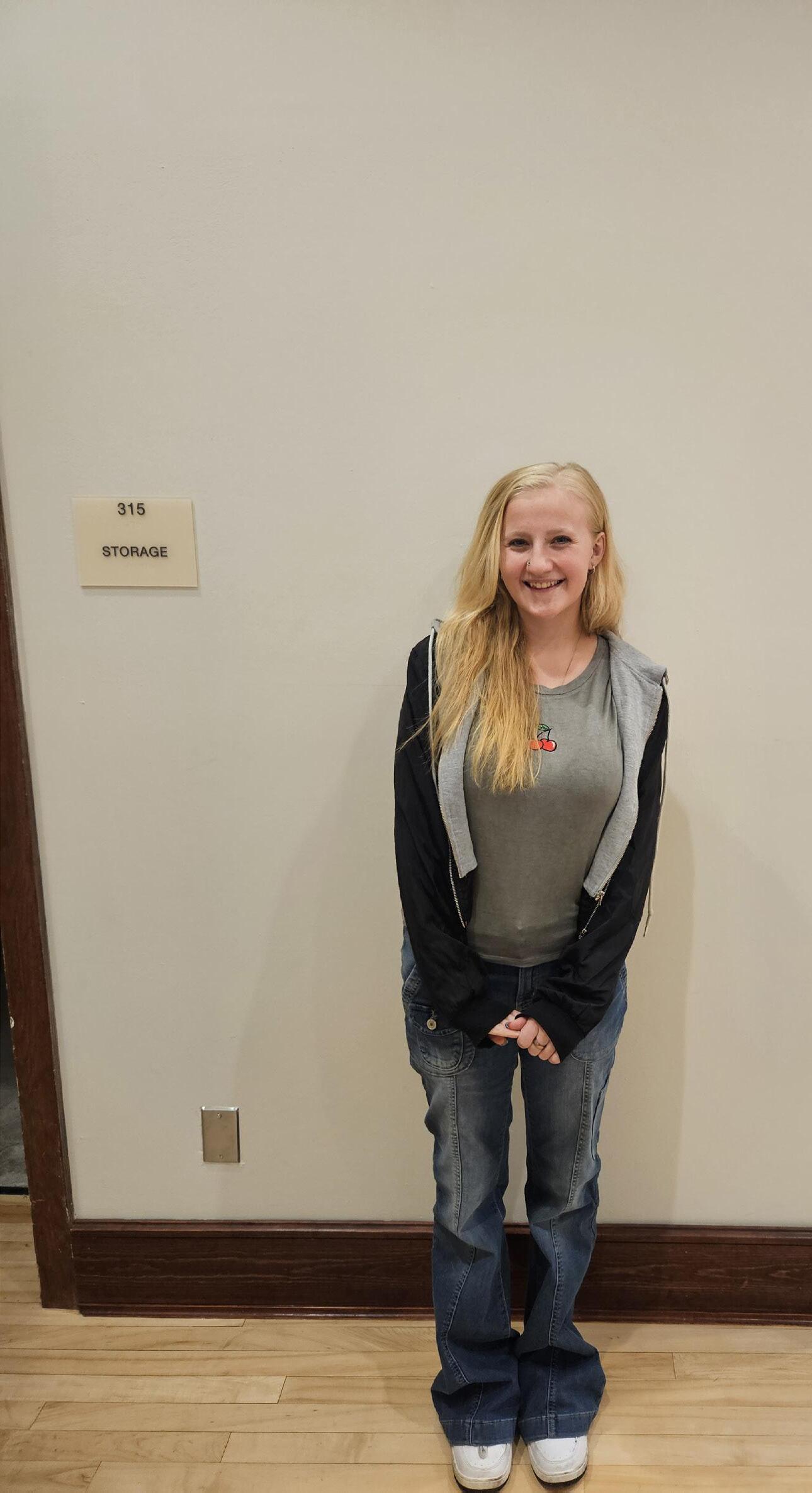



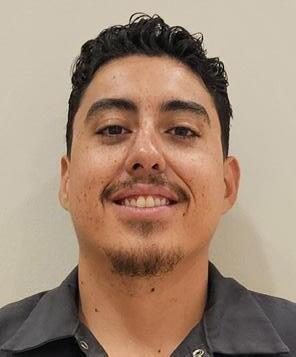
by Kris Eaton, ECE Teacher

“Kiwanis is a global organization of volunteers dedicated to improving the world one child and one community at a time. K-Kids is one of the largest service organizations for elementary school students, with nearly 23,000 members worldwide. In K-Kids clubs worldwide, children are learning leadership through service. They’re taking on the responsibility of running a K-Kids club as they plan and participate in community service projects. They assist the elderly with chores or organize community food drives. They serve their schools, raising funds for sports equipment and extracurricular activities. In big and small ways, they’re changing the world around them. But the most significant change happens in the kids themselves.”
~ https://www.kiwaniskids.org
Last year Aspen Mohan-Litchfield, one of our 5thgrade students, got the idea for a K-Kids club. She expressed interest in starting a club in the elementary department, run by kids including a president, vice president, secretary and treasurer. New Mexico School for the Deaf is the first Deaf school to have a K-Kids club.
Our first year was successful with NMSD K-Kids commitment to make cat toys for the Turquoise Teapot and Cat Café located in Santa Fe, New Mexico.
We ended the year with a celebratory pizza party, the signing of the K-Kids certificate, and the passing of the presidency to the Vice President who is now a 5th grader and running our meetings.

This year, we made some exciting changes by welcoming back last year's 4th graders who are now in 5th grade. They're helping to run most of the meetings along with a new president, vice president, secretary, and a returning treasurer.
This year 3rd and 4th grade students joined in as well. It was no surprise that for their first community project they picked returning to the Cat Café. The owner was ecstatic and asked that we make new cat toys for the cats. Students have been hard at work getting the toys ready.
The K-Kids also look forward to more fund raising this year. They will continue to sell Sees Candy Lollipops to the community, and will also find new ways to fundraise. Students new to the club are learning quickly about voting, fundraising practices, and teamwork.
We also welcomed new staff to the K-Kids family this year: Jonathan Smith and Terri Spangler, our 3rd/4th and 5th grade teachers.
Be on the lookout for club members in their new Kiwanis K-Kids t-shirts. And if you ever have any questions, feel free to reach out or ask one of the members about what K-Kids do.
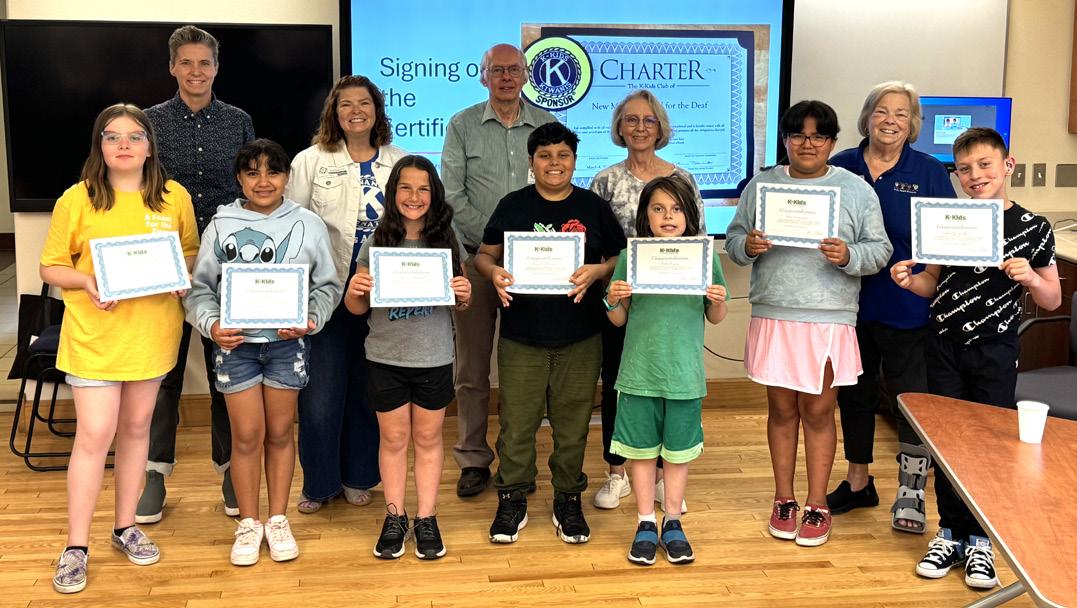
by Joanne Corwin, Director Early Intervention
It is well-known that young children thrive when regular routines are in place in their lives. Routines support all areas of development, but especially social, language, and cognitive development. Experience with the predictable helps children use this strategy as a way to calm themselves and self-regulate. Routines provide ongoing concrete experiences that can lead to the understanding of abstract concepts such as time and space. Additionally, natural routines happen at peak language times such as bedtime, bath time, play time, and meal-times.
For these reasons, and many more, Early Intervention relies on Family Guided Routines-Based Intervention (FGRBI) as one of its foundations. FGRBI is a model of Early Intervention that uses everyday activities and play that occur between care givers and children as the context for embedding functional child outcomes for learning.
Staff of the Early Intervention Department are highly skilled at helping families maximize their natural routines to promote each child’s development.
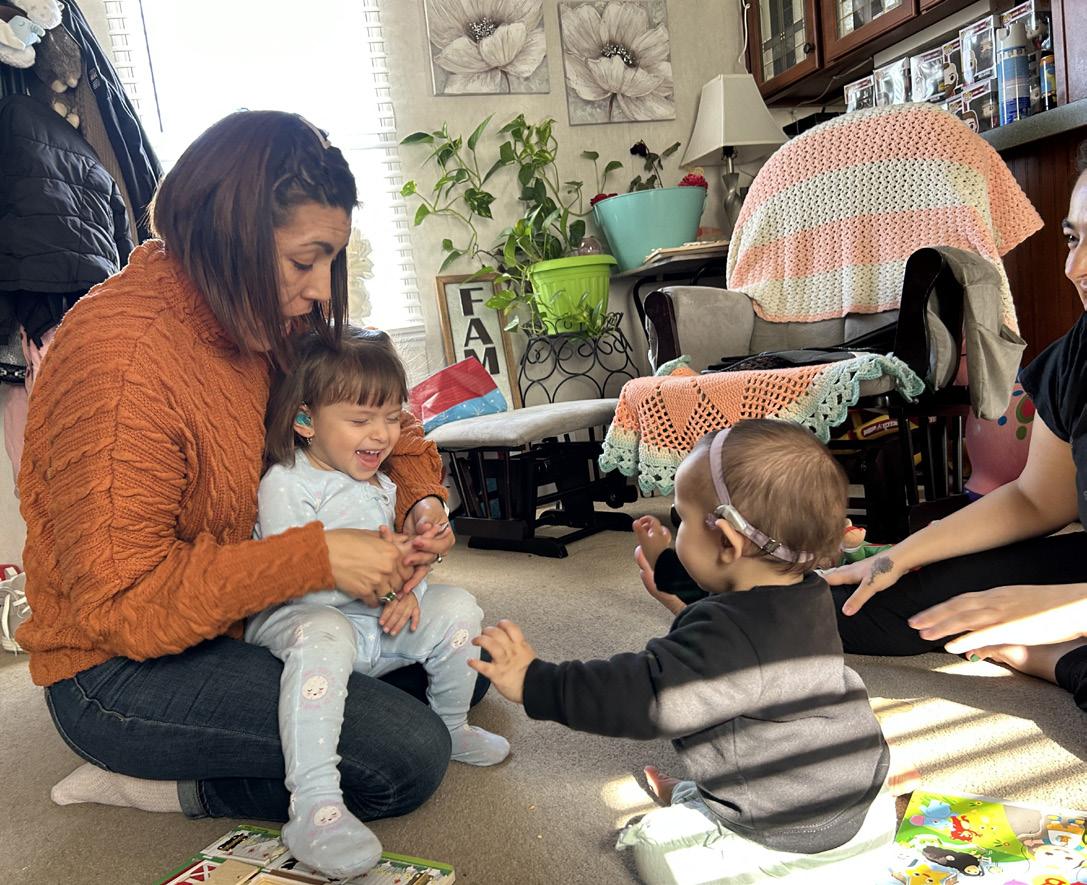
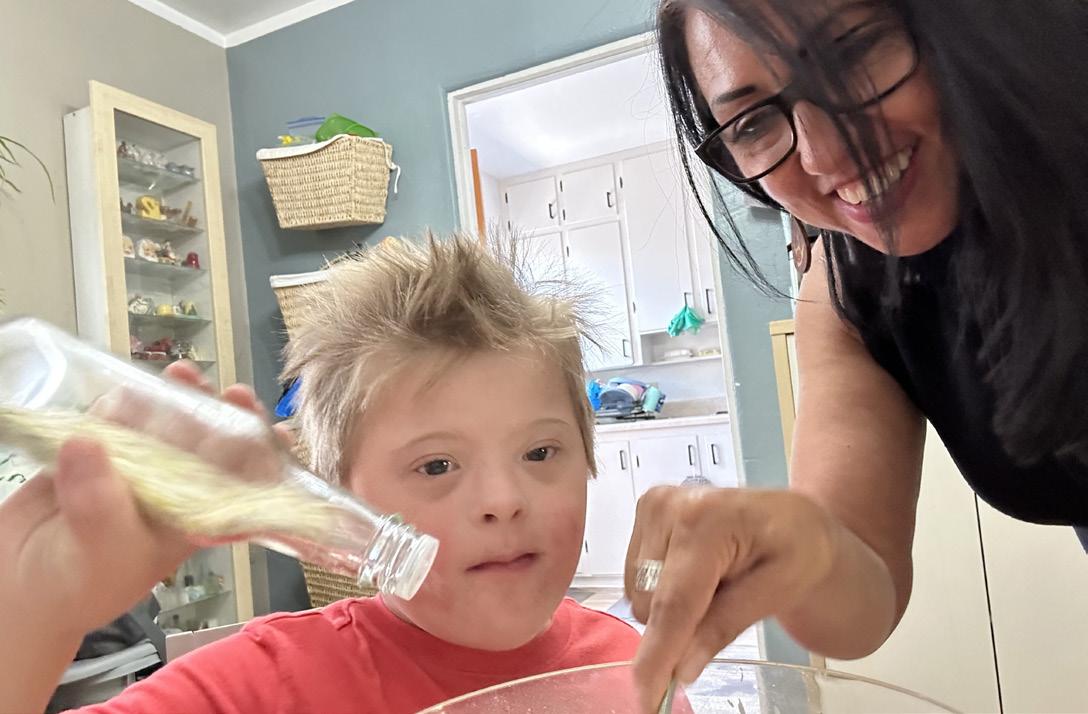


by Diana Huizar, ECE Elementary Principal
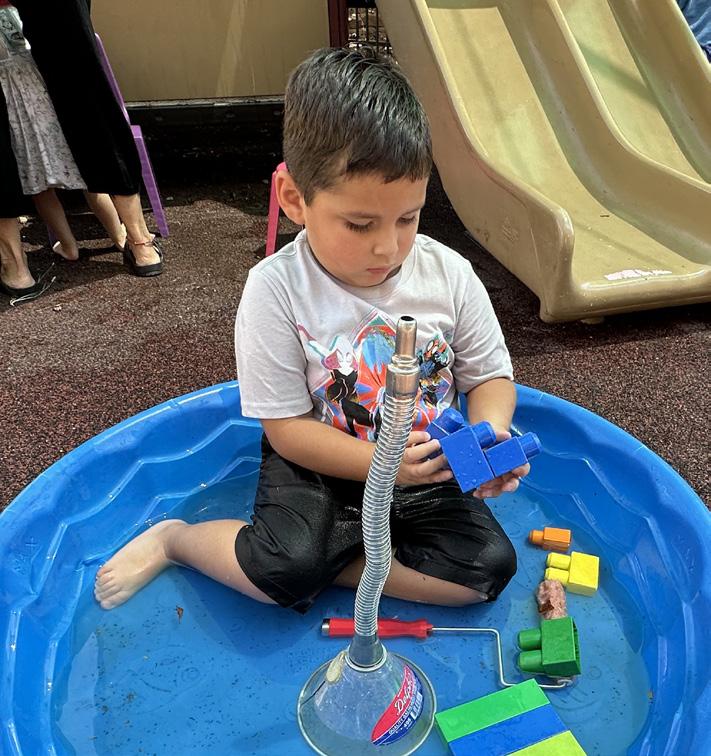


Upon returning to school in August, students experienced extremely hot weather during recess. As the heat persisted, our students naturally gravitated towards water play led by our teachers Emma Lozada, Kimberly Hand and Kris Eaton. Students became creative and engaged in activities such as playing with sponges (squeezing to release water and to absorb water), water play through funnels, painting with brushes using water, and mixing water with dirt.
ECE Teacher Sha Reins held STEAM classes where students interacted with water observing how water changes properties. Students also added
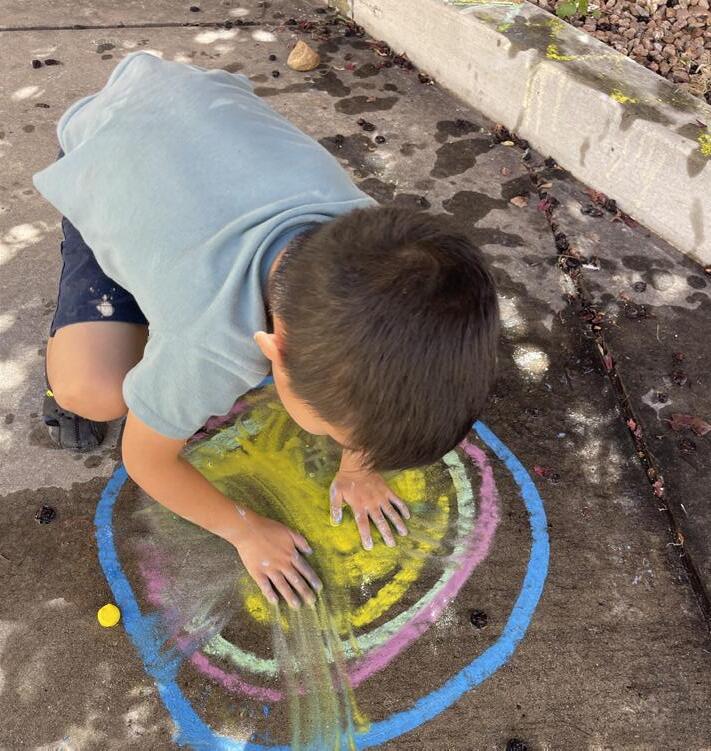

water to chalk powder to investigate the cause and effect of adding water. They got creative in figuring out how to bring water from point A to B by using various materials such as gutters. Elementary students also had the opportunity to create “water slides” in their STEAM classes.
Water play offers many benefits fostering language development while enhancing motor skills and sensory exploration. Through interactions with water, our students also improved their social skills and hand-eye coordination. Along the way, ECE teachers reported a lot of smiling faces!
by Angela Corona, Albuquerque Supervisor & Educational Leader
Being out in nature has many benefits for humans in general. At a young age, outdoor activities support development of gross motor skills, fine motor skills, critical thinking, social interactions, language and so much more.
The NMSD Early Childhood Education Program in Albuquerque maintains a focus on time outside. For the past two years, we’ve been developing outdoor spaces where children can play in order to set the stage for learning and growth. Last spring, staff came together to build boats, cars, and musical walls on our playground.
This fall we’ve created new play opportunities in the fenced-in spaces outside our classrooms. All the hard work has paid off with students showing intense engagement, new dramatic play schemes, and enhanced communication with others. We look forward to more time learning in the open air.


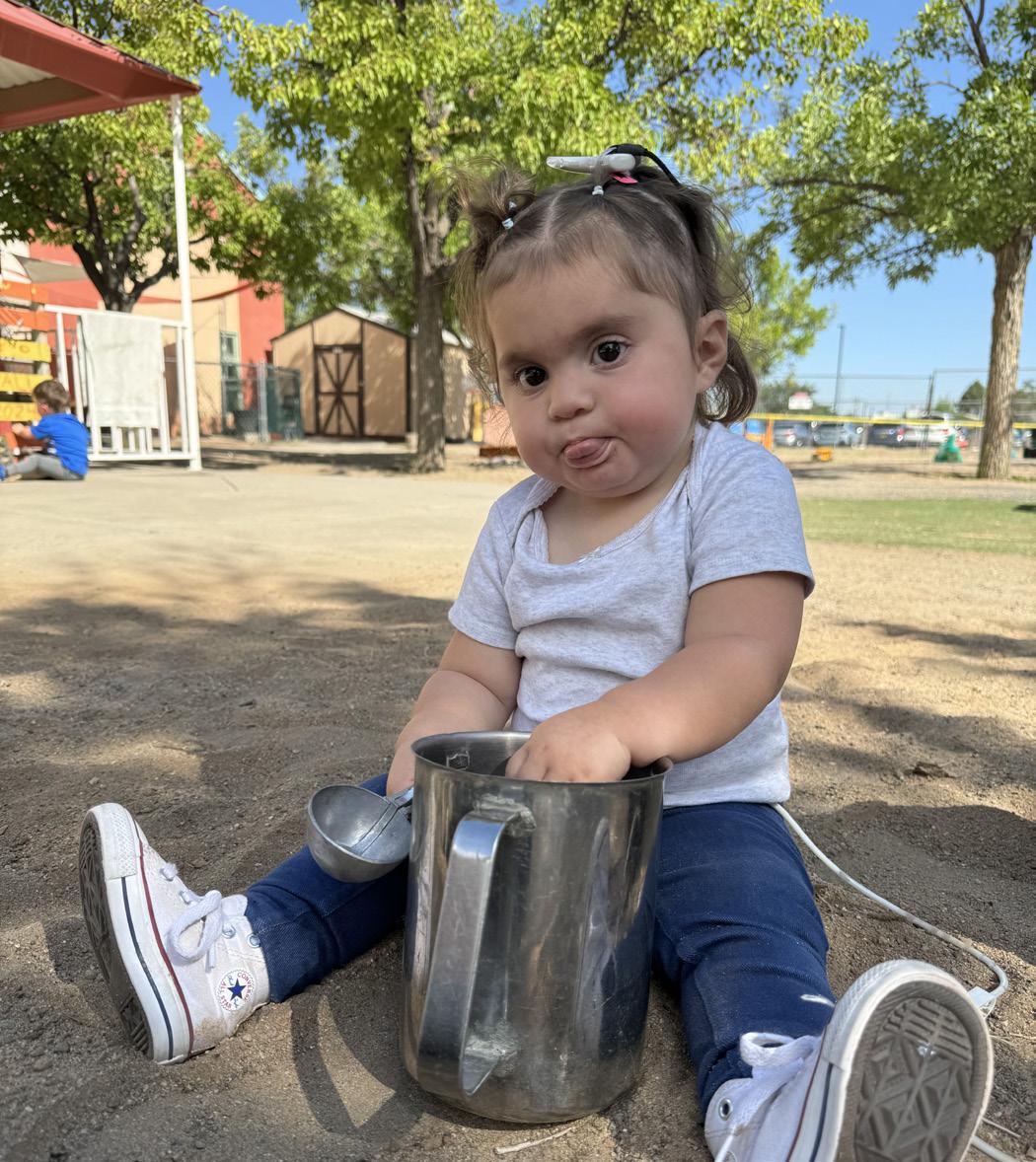
by Mary Helen Perez, Farmington Teacher



When it rains in the desert, lesson plans shift to a rain exploration lesson.
Our Farmington preschoolers were eager to get outside after a September cloud burst. First, we watched a storm from the windows and reviewed various ways to describe rain using ASL.
Later we read the book, Are You Ready to Go Outside? a Piggie and Gerald story. And finally, with our rainboots on, we headed out to watch the swift water in the gutters.
Students tossed leaves, flowers, and small sticks into the flowing stream. Later they were surprised to find some of their leaves, flowers, and sticks at the bottom of the street where the water took a sharp turn.
Note the pure joy that comes from the freedom of puddle stomping; a natural inclination that lives in the heart of every child. One student noticed that a leaf makes a water vessel. He tossed the water against the building and noticed the pattern the water made on the stucco. Another student enjoyed digging in the mud. One was inspired to write about his eventful day in his journal. Even our everyday sink turned into a water playground when we added a basket of funnels, containers, tubes and scoops.
Our students are naturally drawn to water and the many lessons it brings.

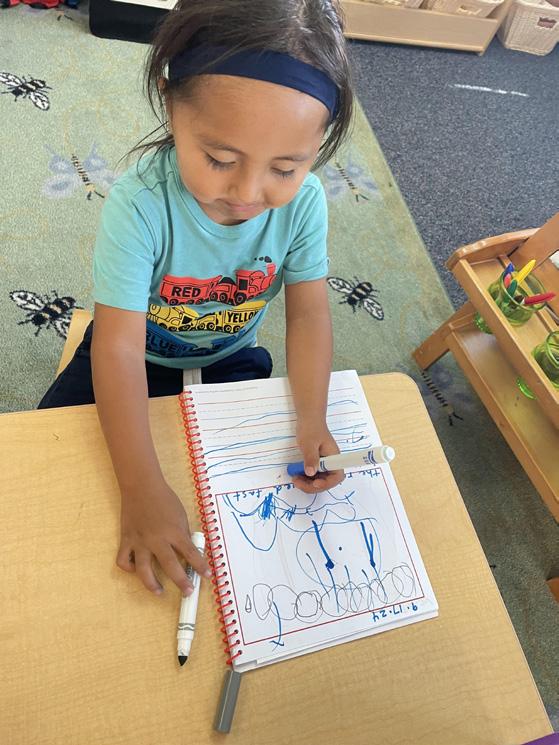

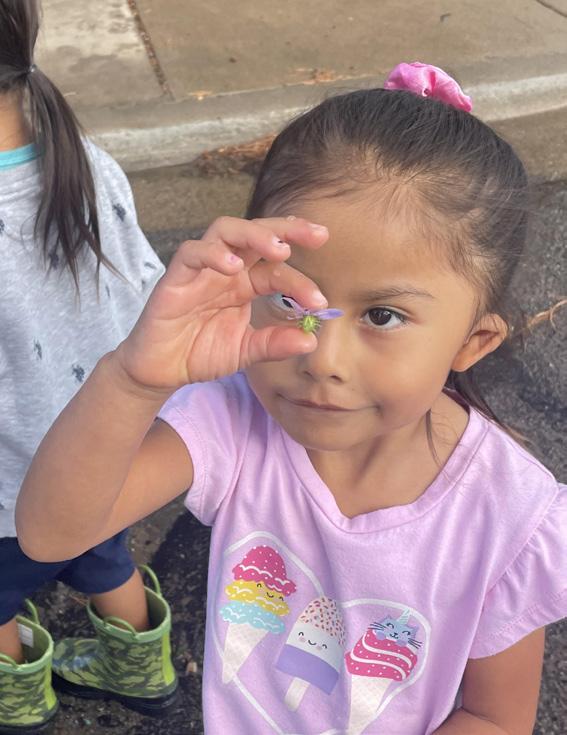
by Diana Huizar, Elementary Principal, Santa Fe
In August, the people of Santa Fe prepared for the 100th burning of Zozobra by constructing the figure and filling it with papers symbolizing the negative things they wanted to let go of. Our upper elementary students had the opportunity to visit the 100th Zozobra before its burning on the Friday of Labor Day weekend.
Our elementary students visited the Kiwanis International Club at Santa Fe Place Mall, where Raymond Sandoval, the chairperson for Zozobra, shared the background of the event. Some students operated remote controls that moved Zozobra's eyes and eyebrows. Students were able to see the many papers stuffed inside Zozobra's body and arms. Raymond also demonstrated the new remote control feature for moving Zozobra's hands.
All of Zozobra’s body parts needed to be connected separately to make it easier to transport from the mall to Fort Marcy Park, where it would be assembled for the celebration.
Standing at 50 feet 6 inches tall, Zozobra's impressive structure sparked discussions about construction and the upcoming event at Fort Marcy. What a memorable experience it was to experience one of Santa Fe’s oldest traditions.

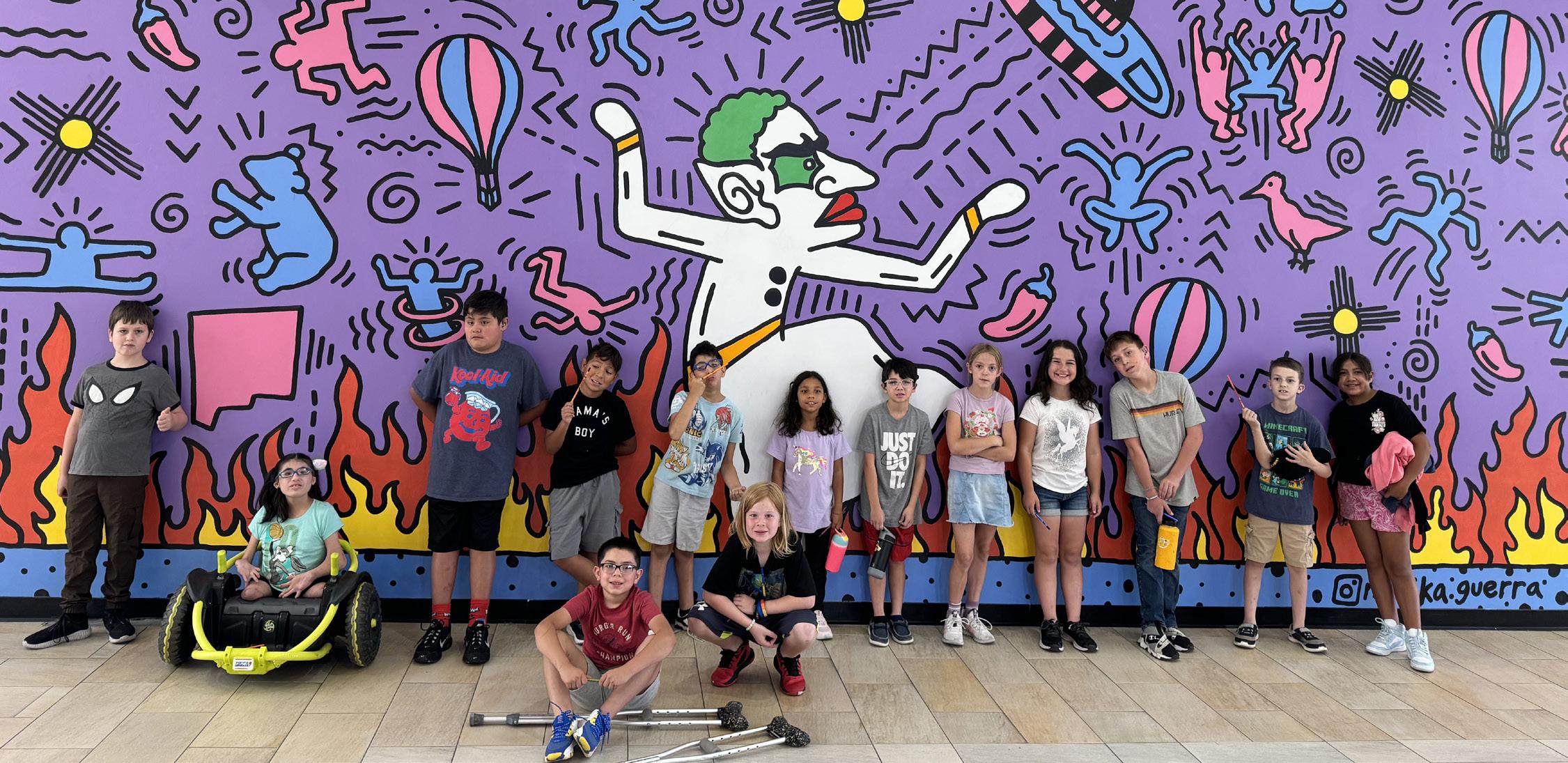
by Jesse Woosley, Transition Coordinator
NMSD had the privelege of hosting our summer camp at Aspen Camp for the Deaf and Hard of Hearing in Snowmass, CO for the 2nd year in a row. Third through eigth graders honed their artistic skills, sense of adventure, ability to work in a team, as well as their theatrical aptitude. Activities included rafting, paddle boarding, swimming, biking, hiking, doing skits, art, rides at an amusement park, exploring, and more! We are grateful for the opportunity to be able to host our summer camp program at Aspen Camp for the Deaf!



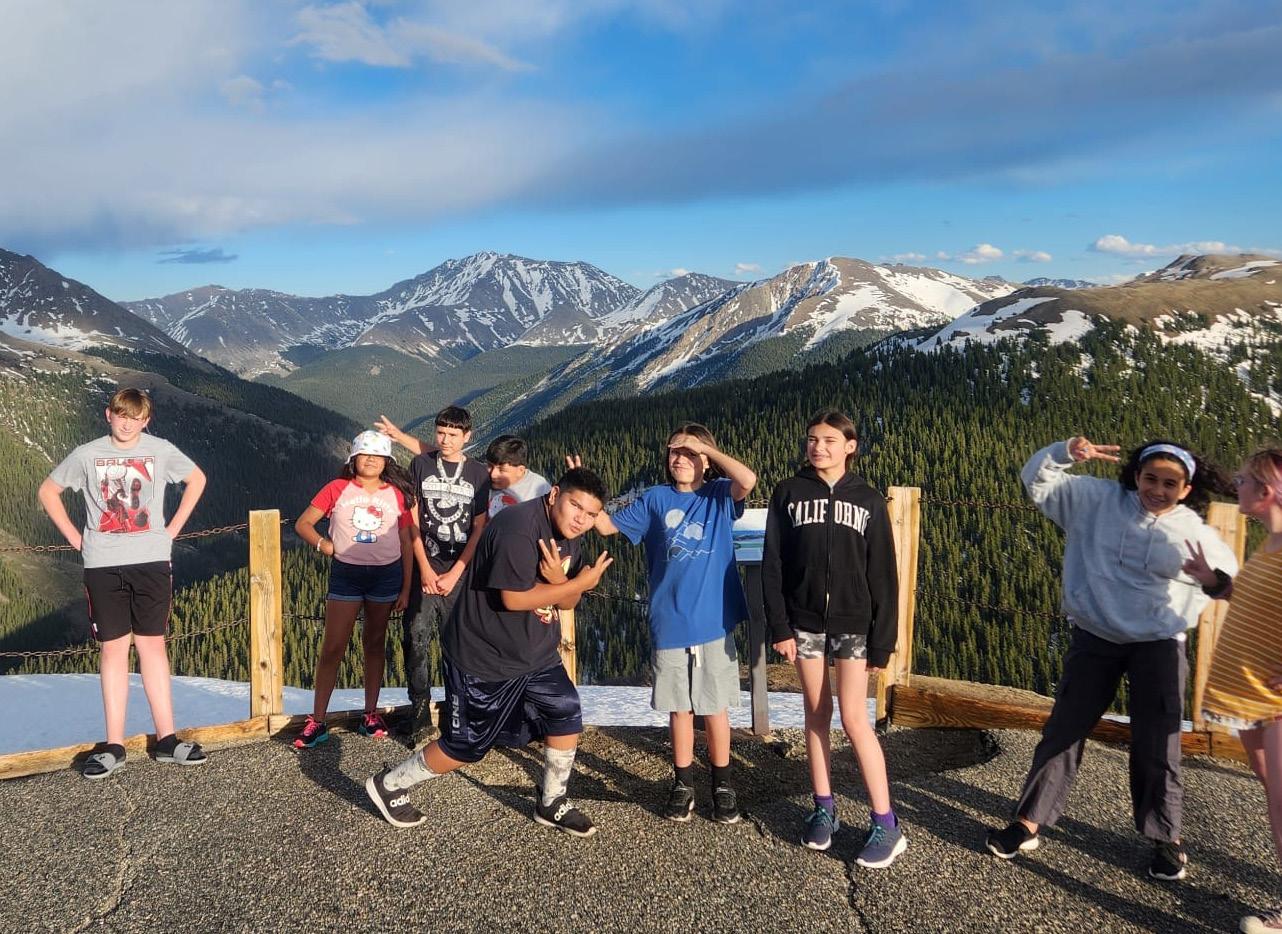
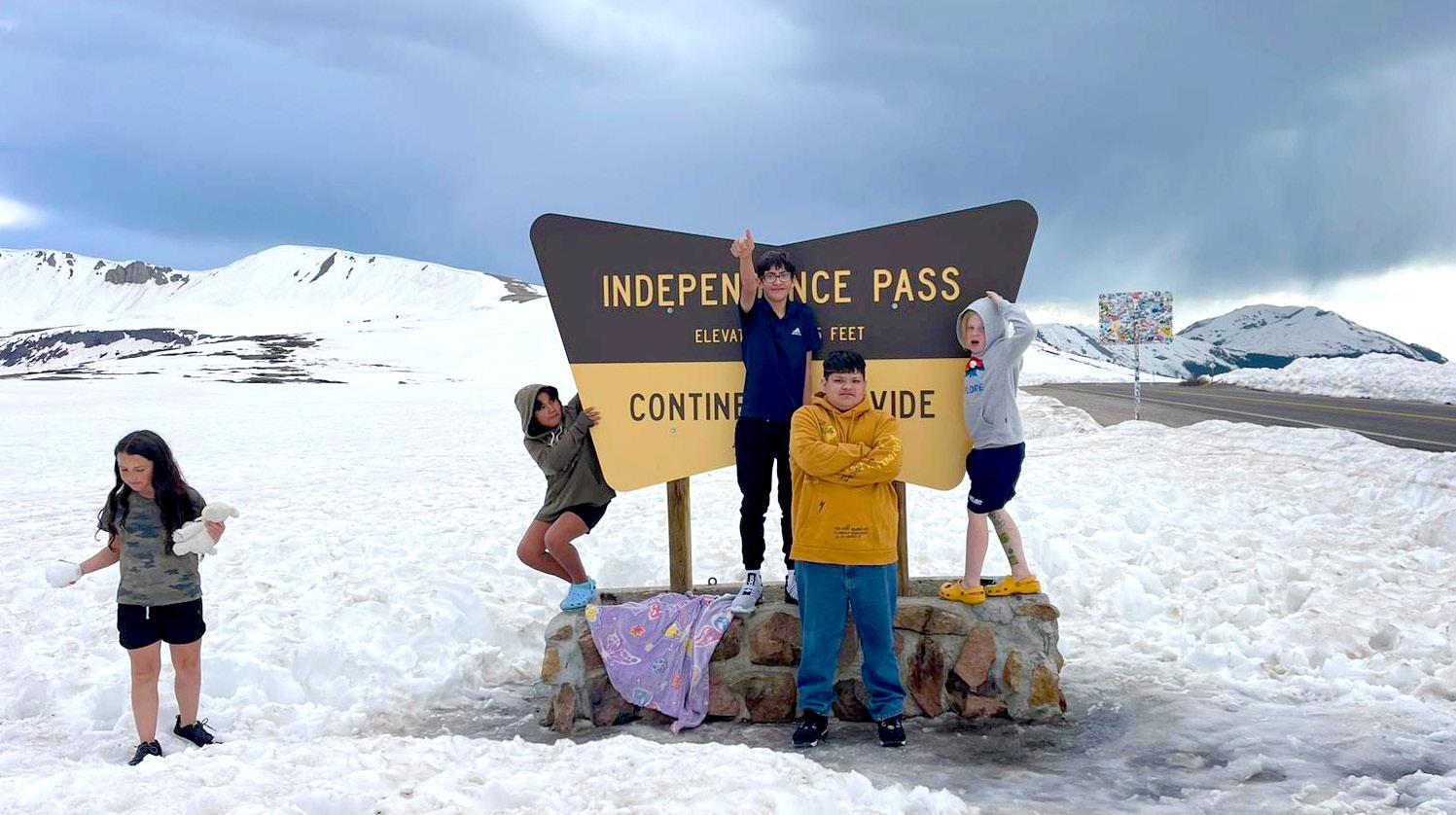
by Sherry Mohan, High School Teacher
Robotics for high schoolers has launched! This is an exciting new opportunity students will have to explore STEAM in a hands-on and collaborative environment.
Our high schoolers will be challenged to design, build, and program a robot for competitive events. We look forward to seeing our students grow and innovate!
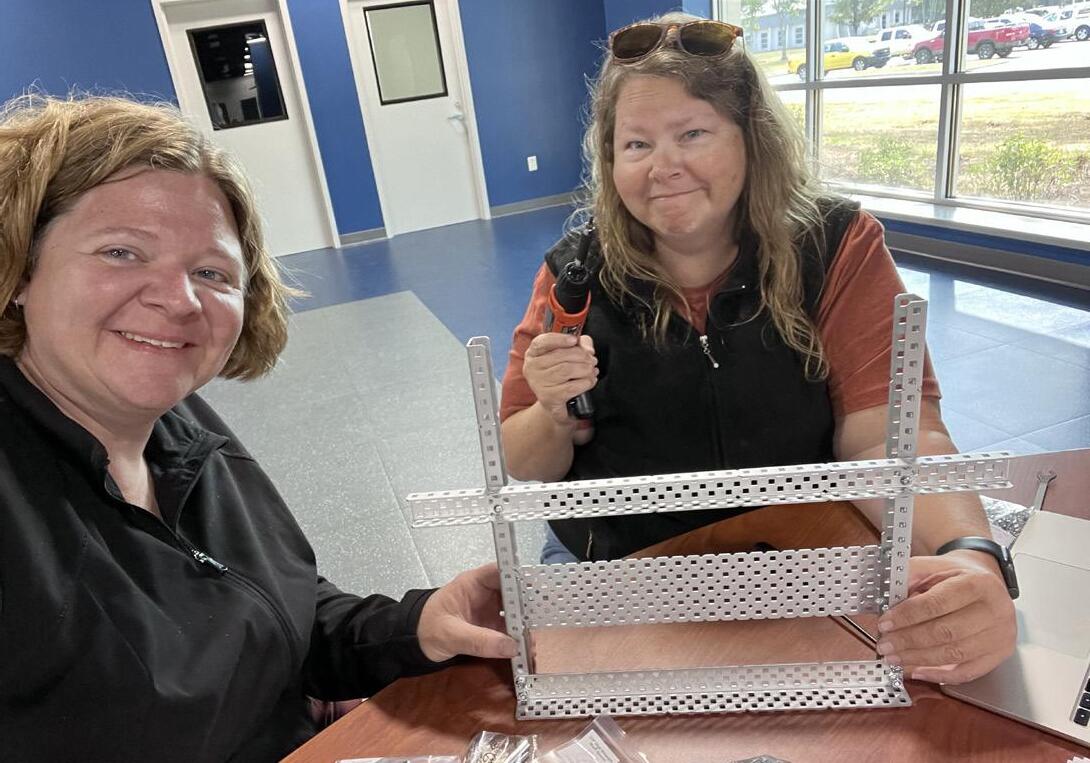
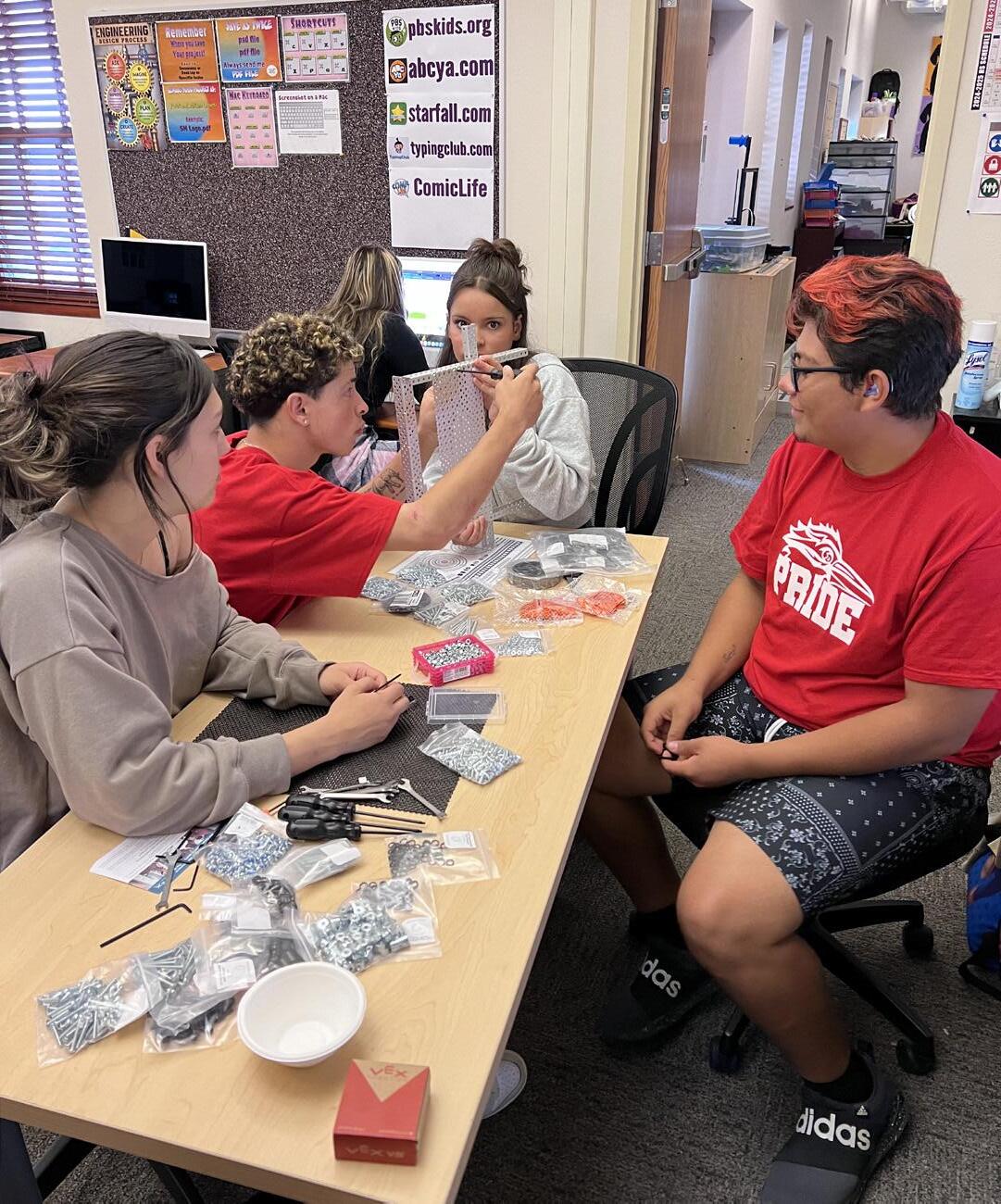
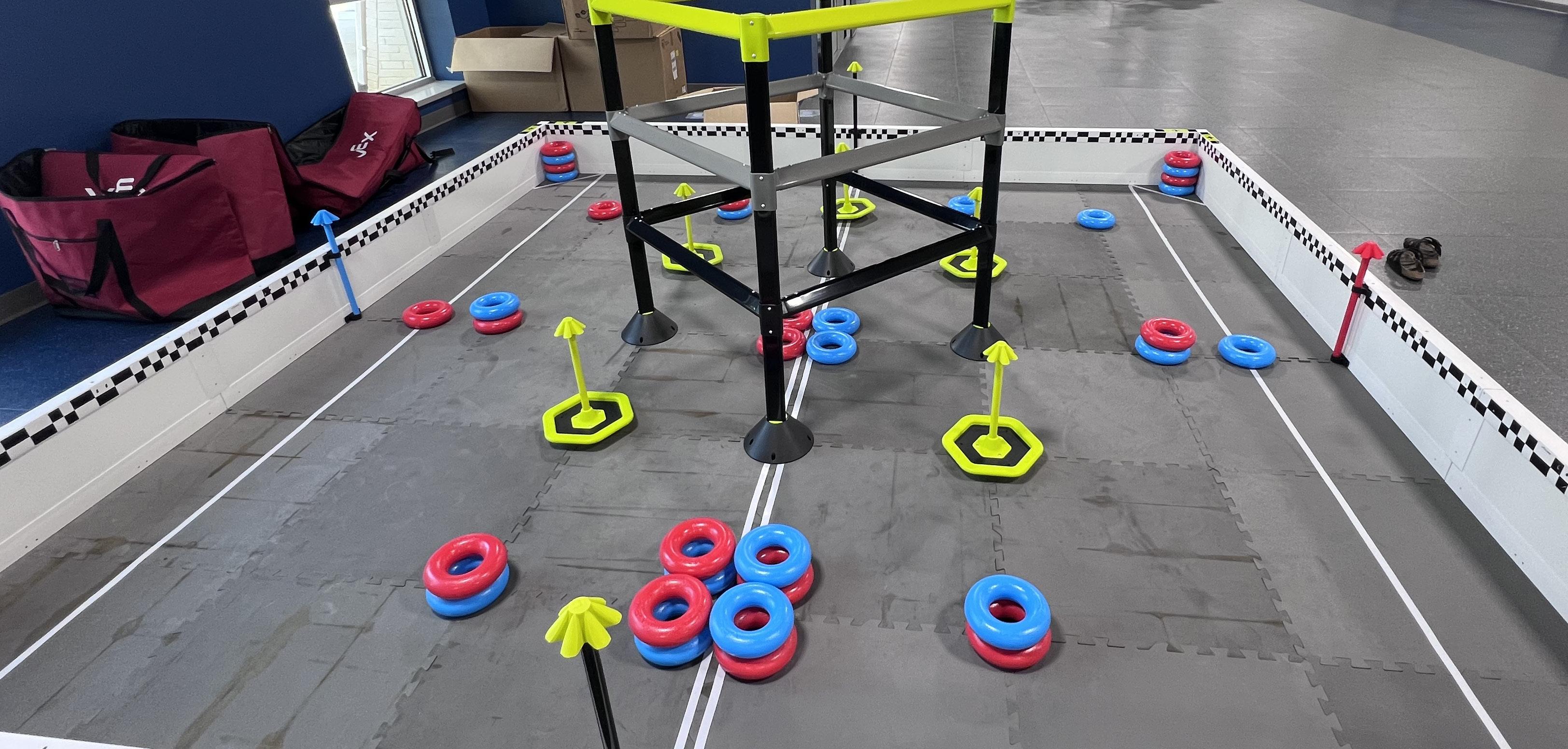
by Jesse Woosley, Transition Coordinator
Our students continue to have opportunities to be involved with Rocky Mountain Youth Corps (RMYC.) RMYC has expanded their ASL Conservation Program to provide youth with meaningful opportunities for work projects involving conservation, climate resilience, prevention, and education.
Students were involved with projects at Pecos National Historic Park, Petroglyph National Monument, and Salinas Pueblo National Historic Park. Students were also involved with a campus clean-up project on the NMSD campus for over two weeks in the summer; removing invasive species and tidying up spaces.
NMSD is grateful for a project partner like RMYC whose overall mission is environmental stewardship and community engagement.

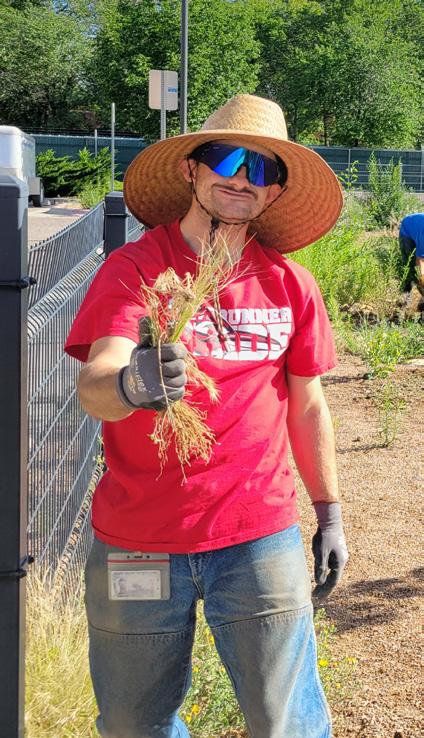

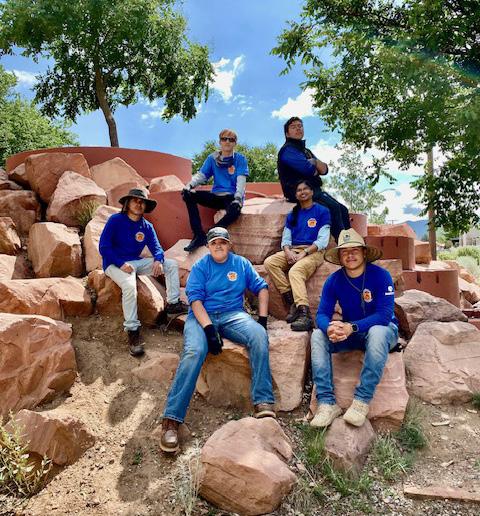

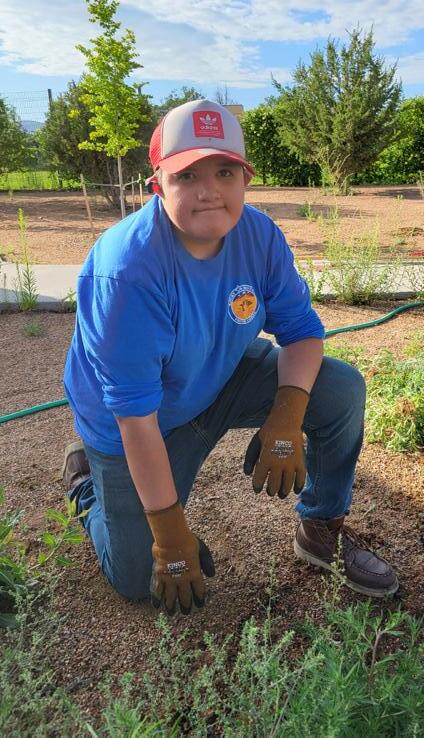

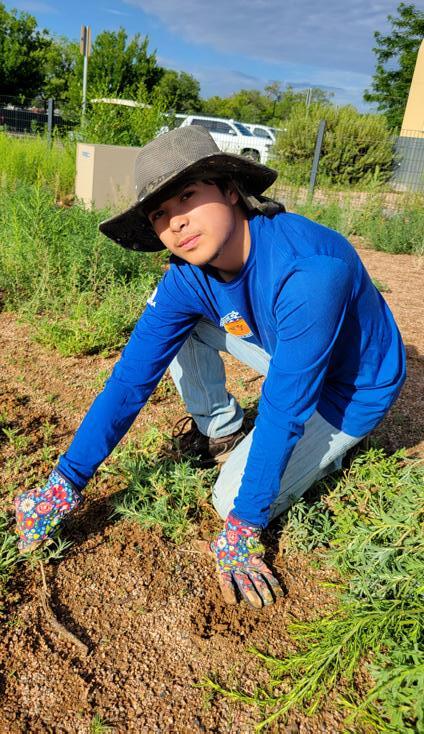

by Uriel Torres, Middle & High School Assistant Principal
This year's Mexican Independence Day celebration had a strong turnout, with families, students, teachers, and staff in attendance.
The event began with Masters of Ceremonies, Angelique Quinonez and Julian Aranda-Sotelo, introducing the program and providing an overview of Mexican Independence Day history.
Everyone enjoyed a magnificent folkloric dance performance by the Santa Fe Ballet and the delicious festive dinner gathering that followed.



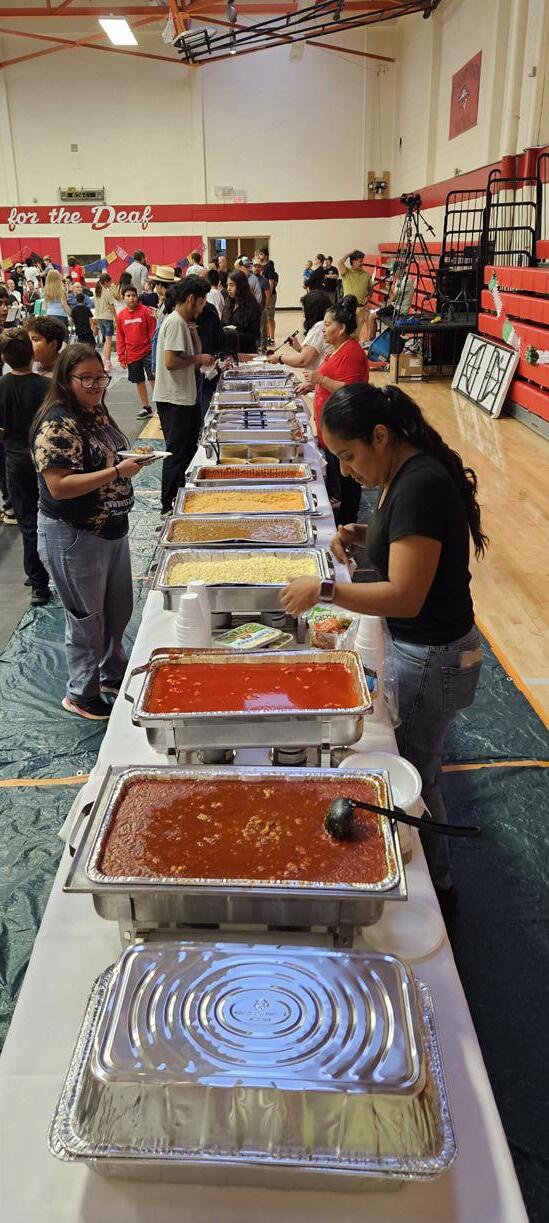

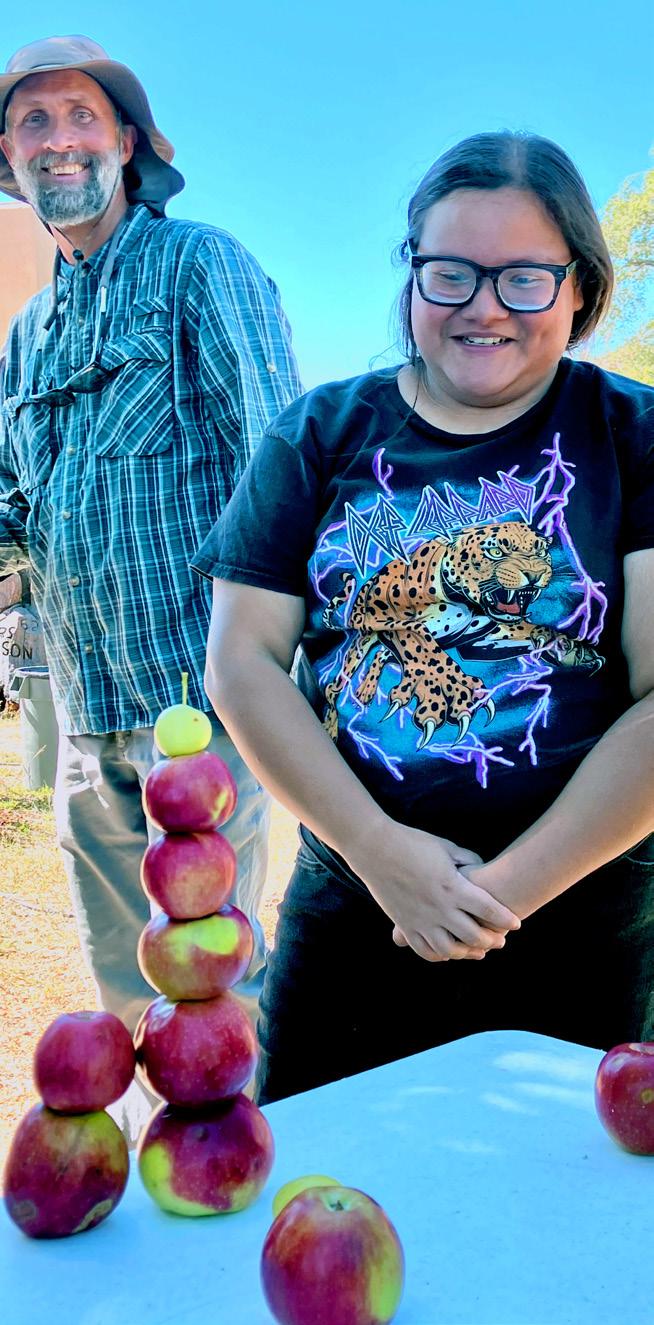

Students from early childhood through high school gathered at the NMSD orchard for our annual Harvest Day to pick apples and press fresh cider. This lively event kicked off the autumn season; allowing everyone to connect with nature and embrace the spirit of teamwork.

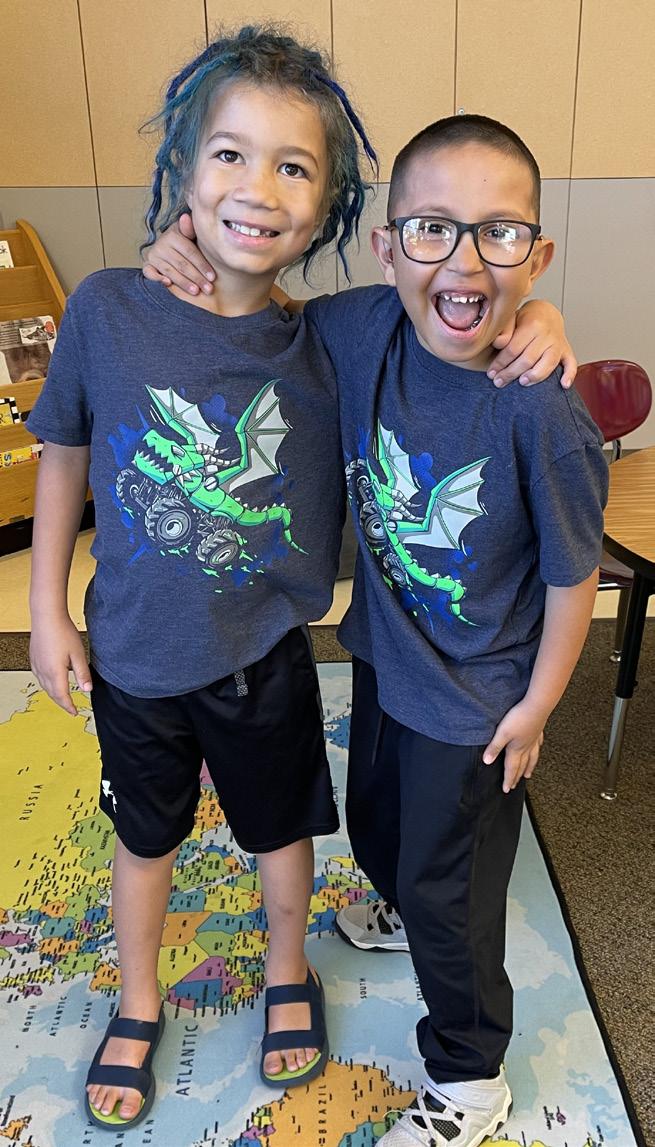

NMSD students turned up school spirit during Spirit Week; bringing creative and colorful costumes for each day's funfilled themes: Food Day, Emotions Day, Disney Day, Neon Day and, of course, Red and White Day! All week students participated enthusiastically, showing off their unique styles and team spirit.

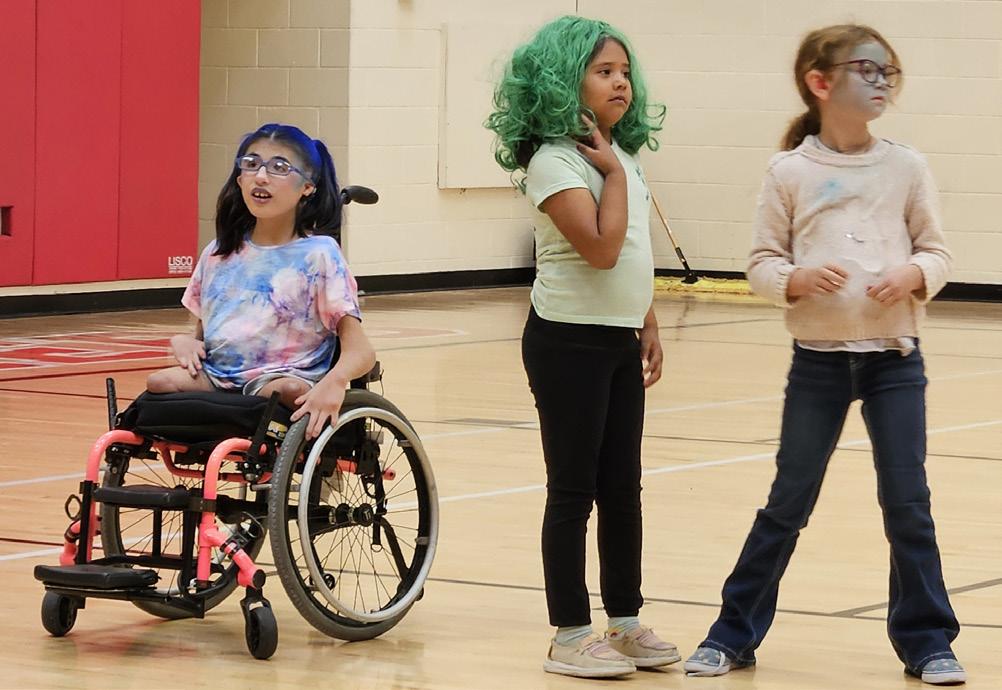




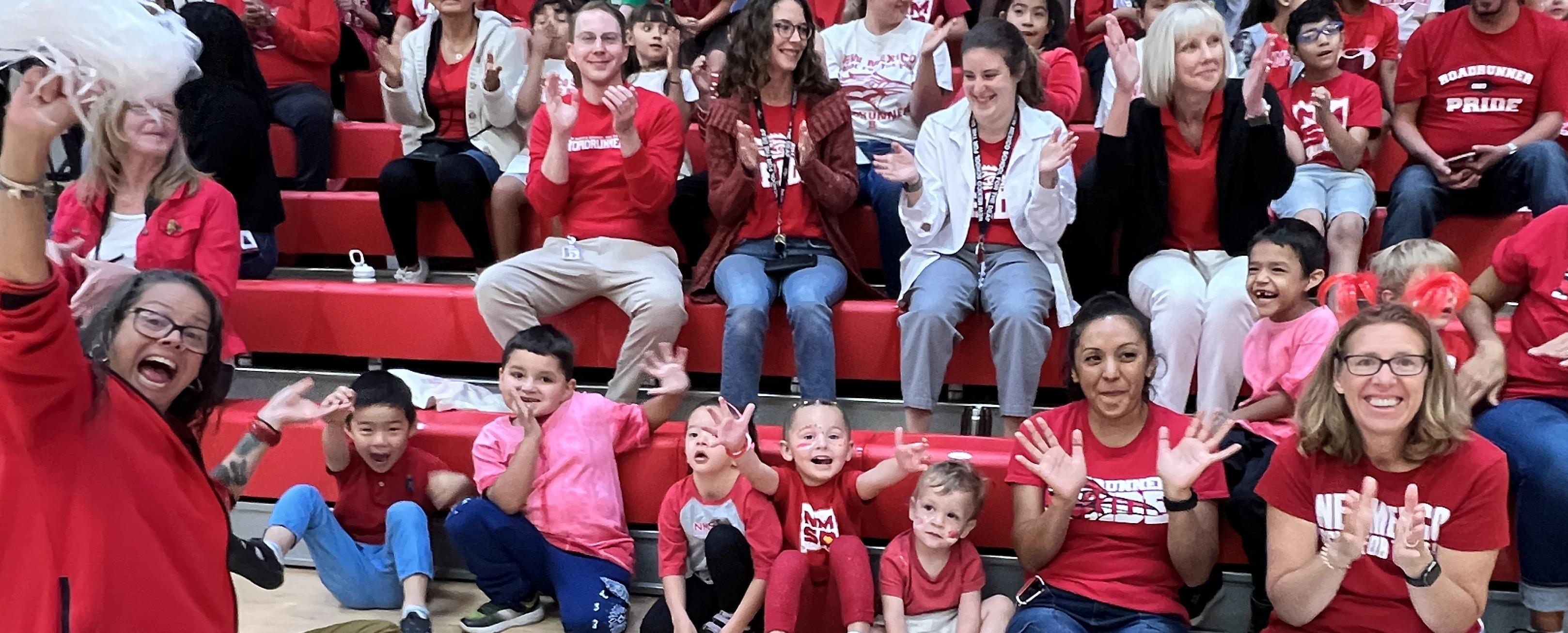
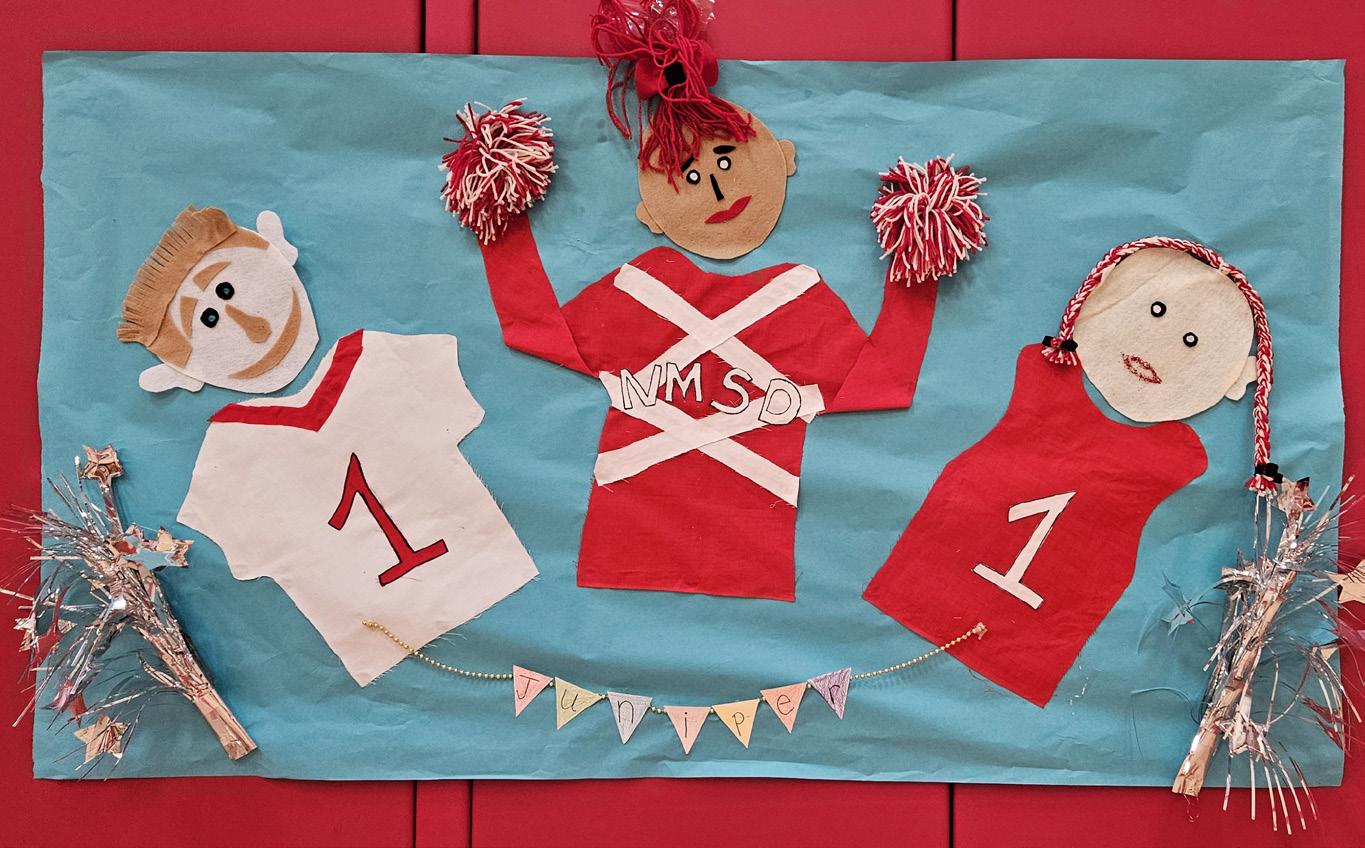

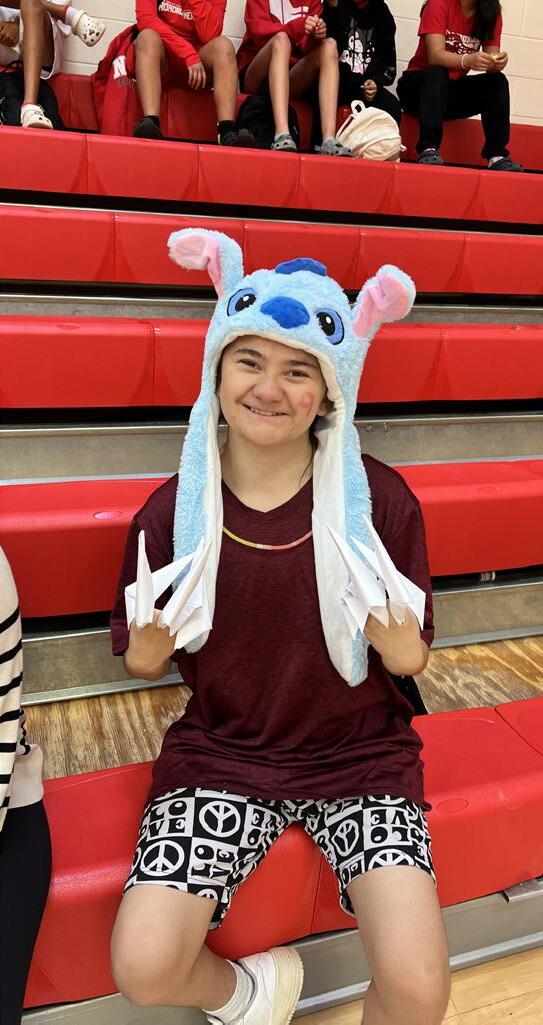
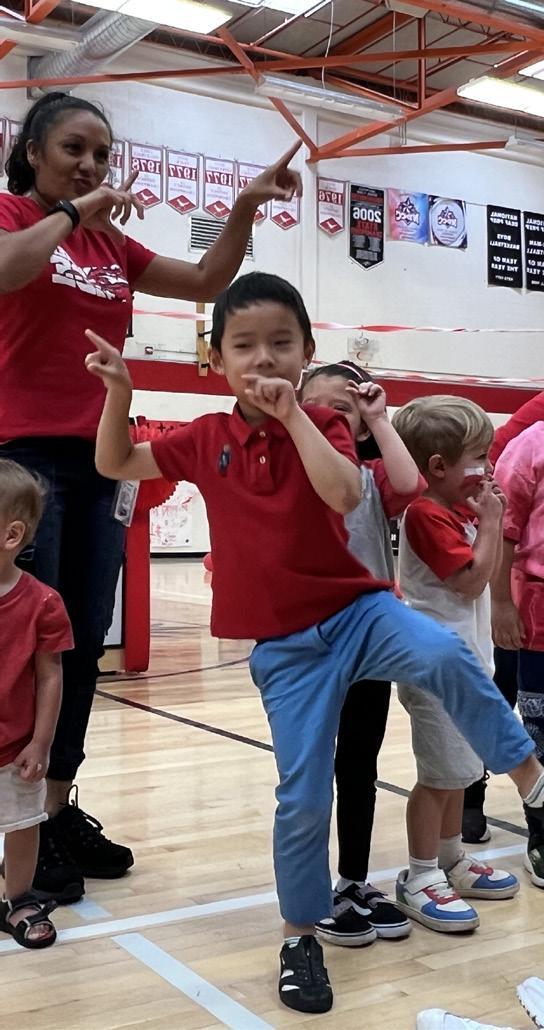
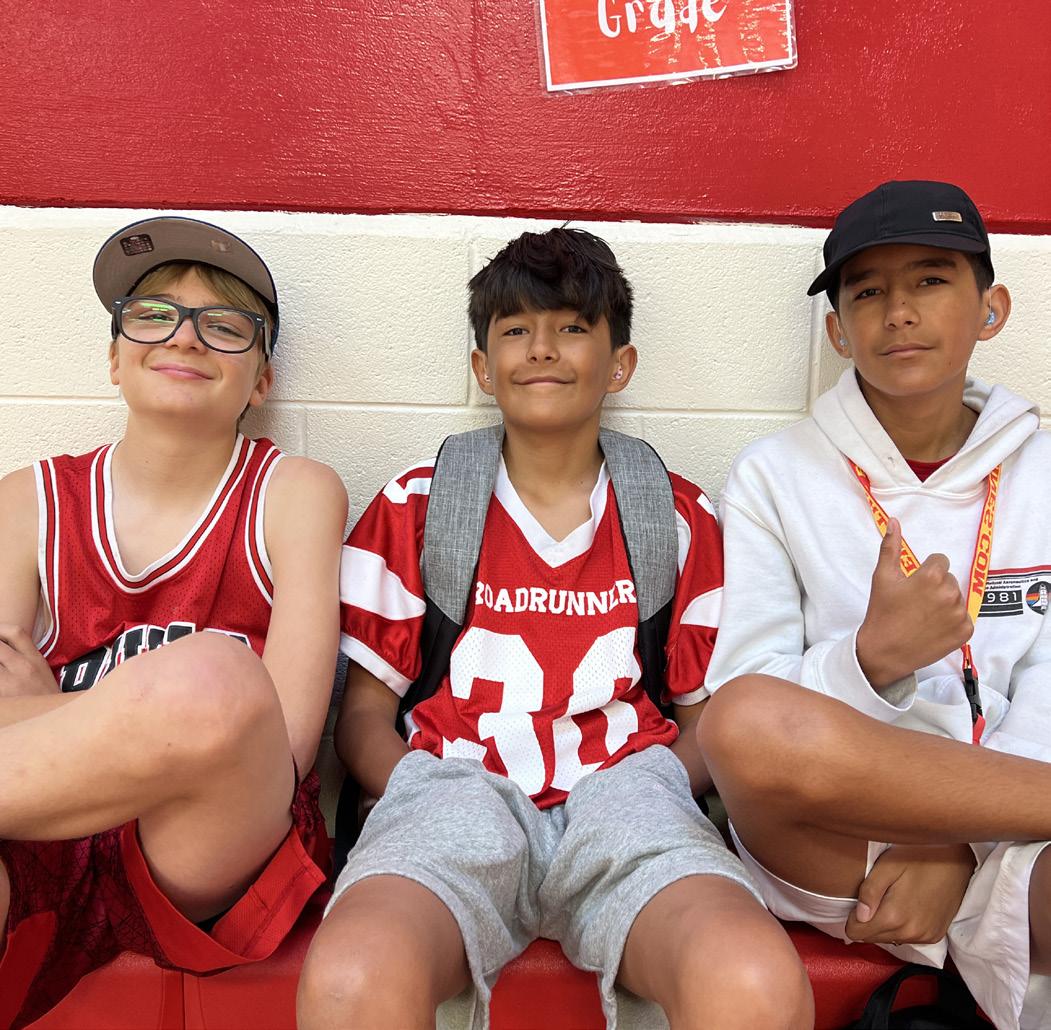
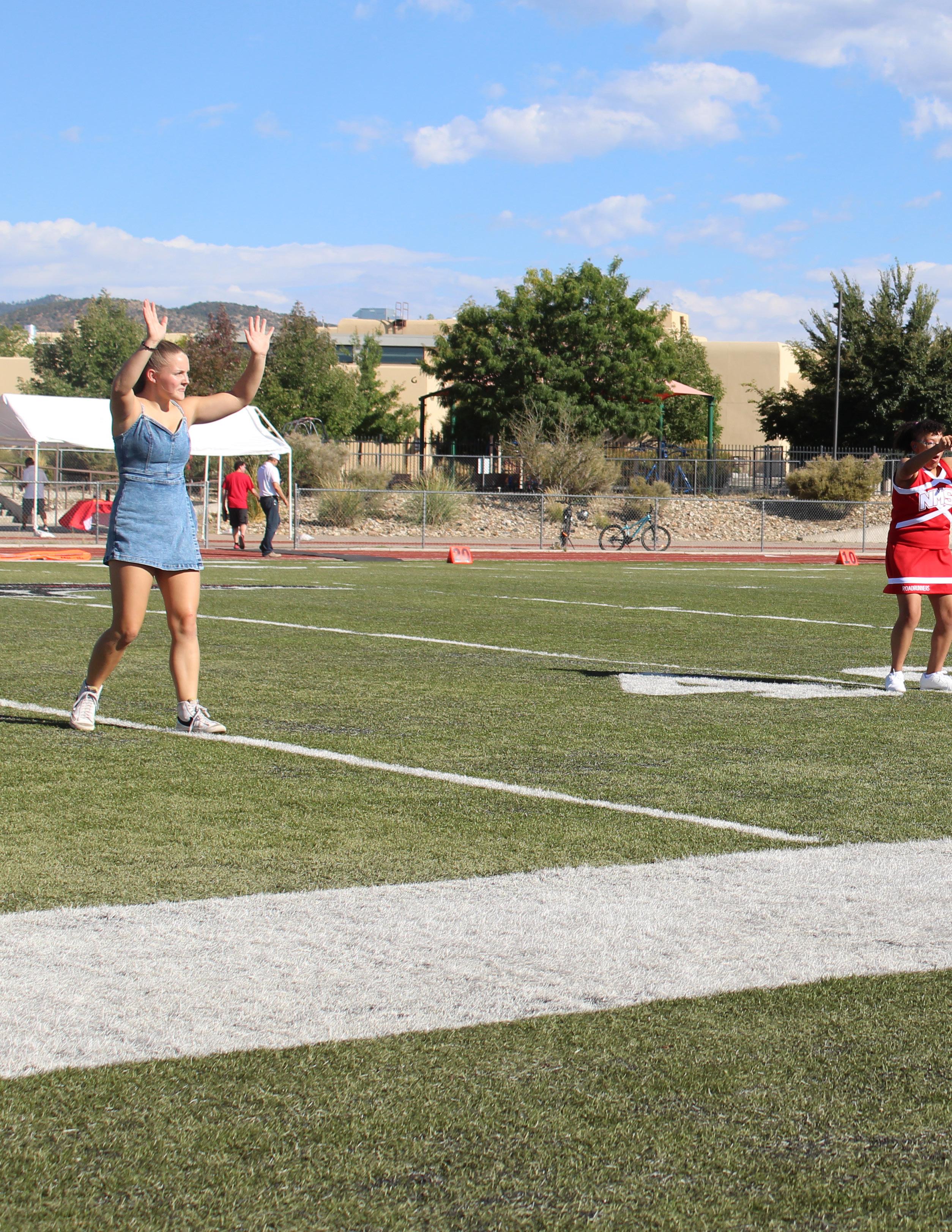
by Letty Perez, Athletic Director
Homecoming Day was a beautiful day, perfect for the event.
In the morning there was a round-robin of volleyball matches between NMSD, ASDB, and CSDB. NMSD took home the victory!

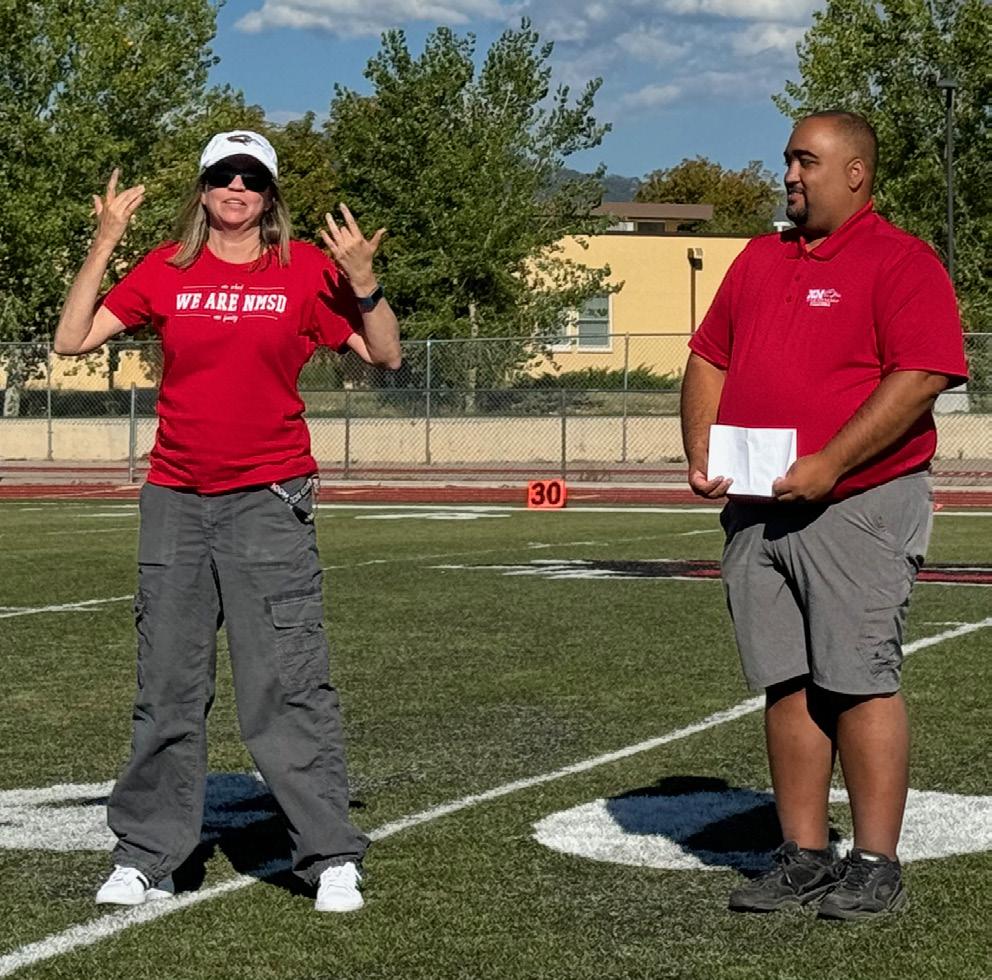
In the afternoon our football stands filled up with students, alumni, staff and community who came to watch NMSD play the Roy Longhorns, last year’s state champions. The NMSD football team never gave up and chased Roy throughout the entire 4 quarters, giving the fans a great show.
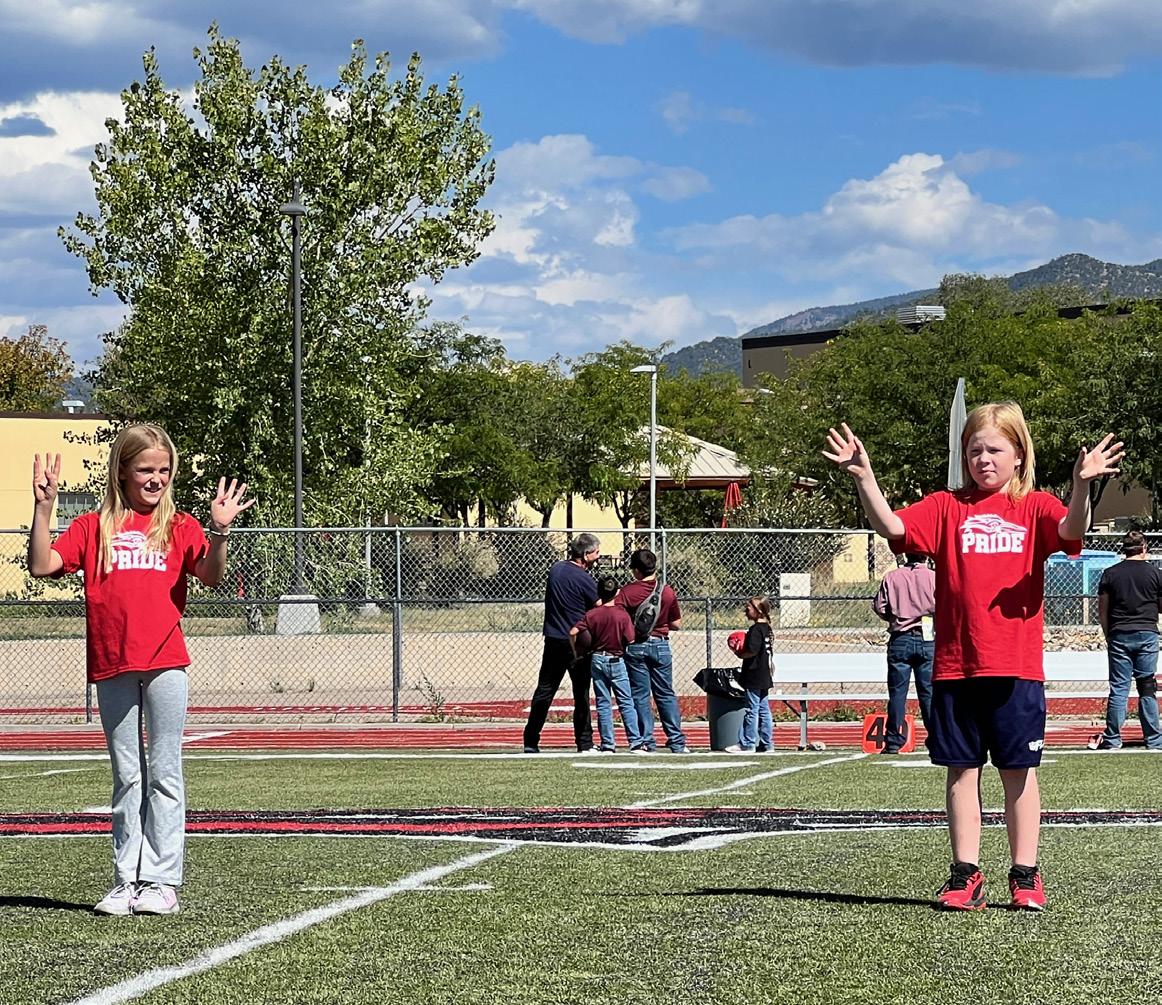
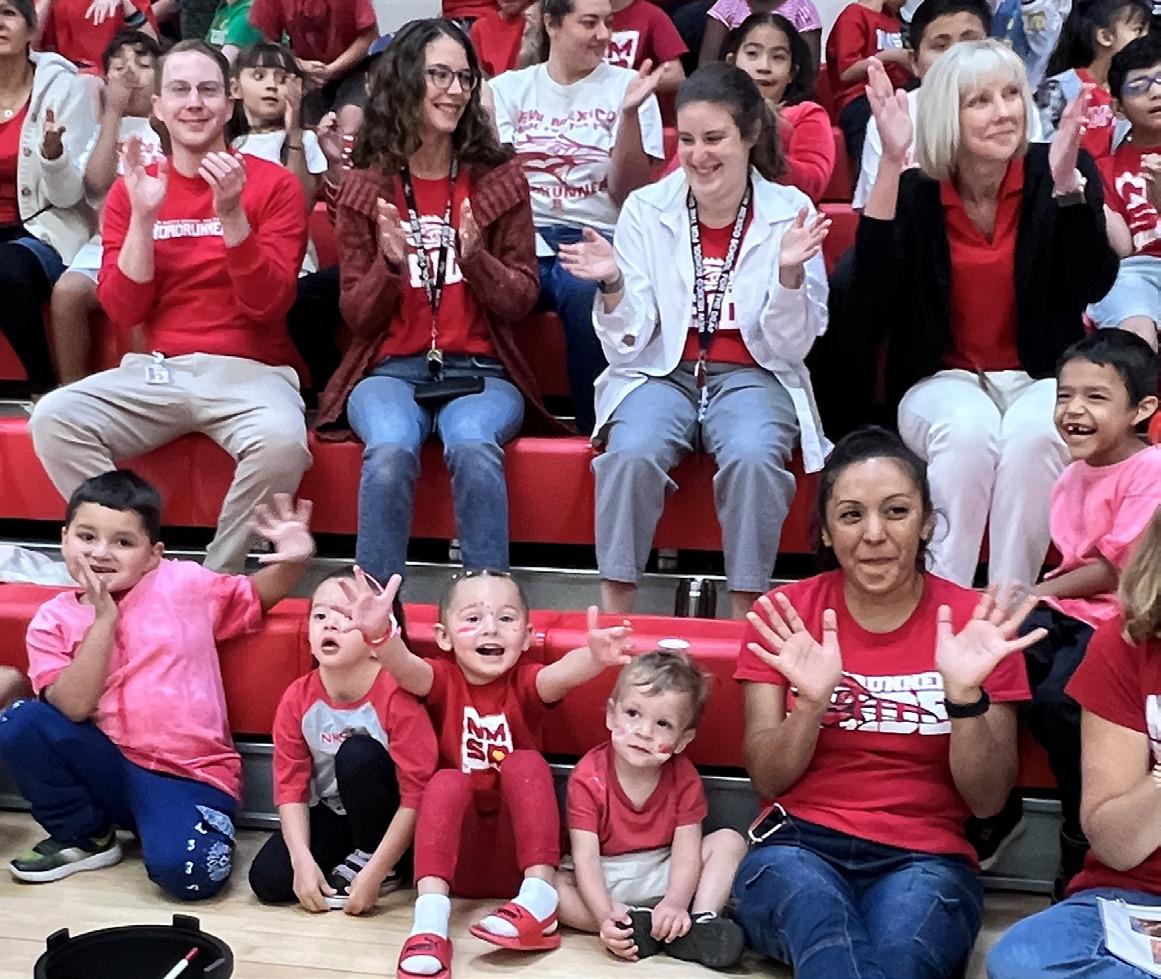


Roadrunner Royalty
Angelique Quiñonez & Leilani Crespo
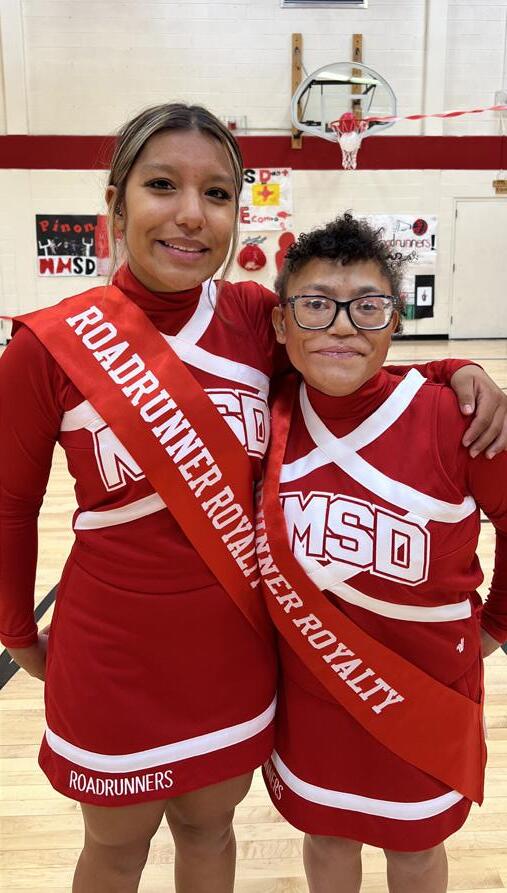
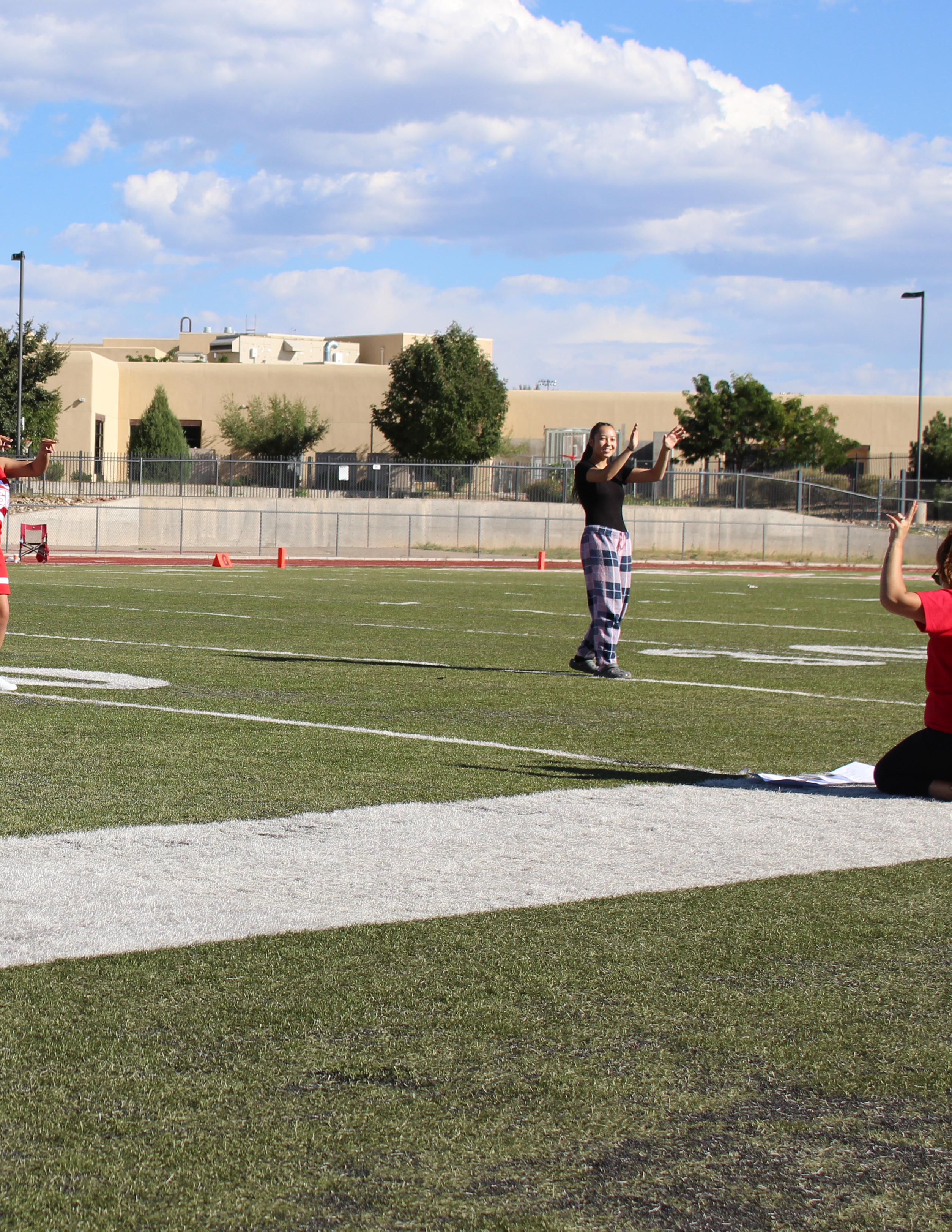
Junior Roadrunner Ambassadors
Santiago Lopez & Sirrah Wilding

Varsity Football
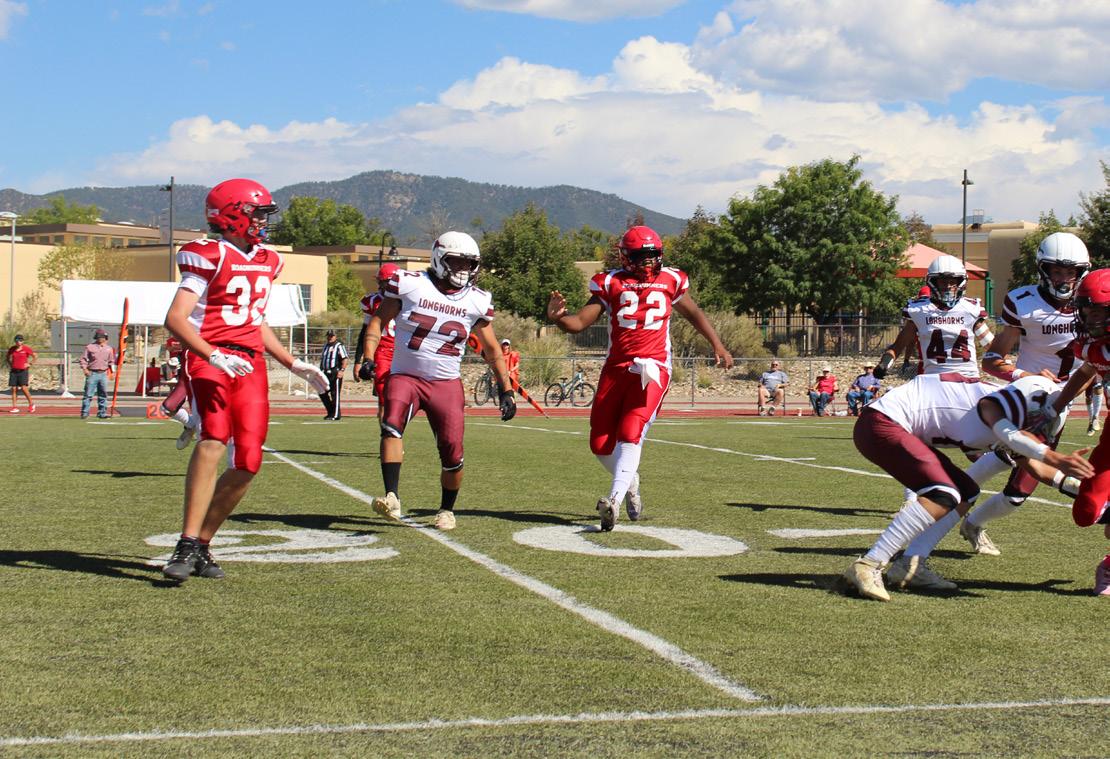
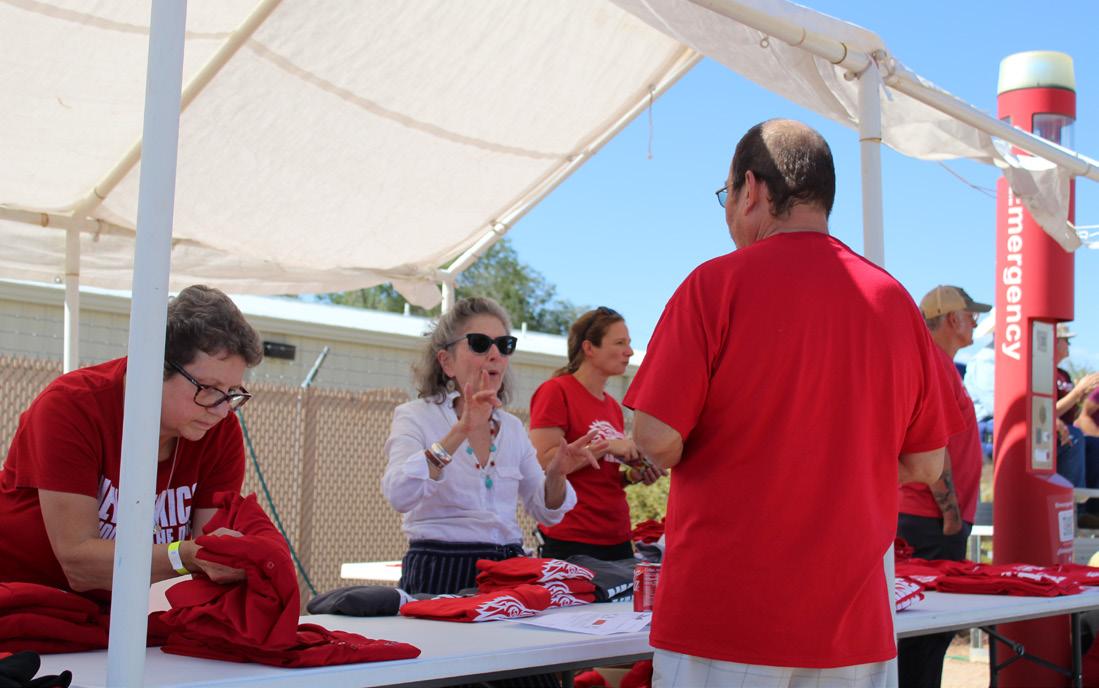
Sophomore Roadrunner Ambassadors
Emma Gomez & Tamryn Smith
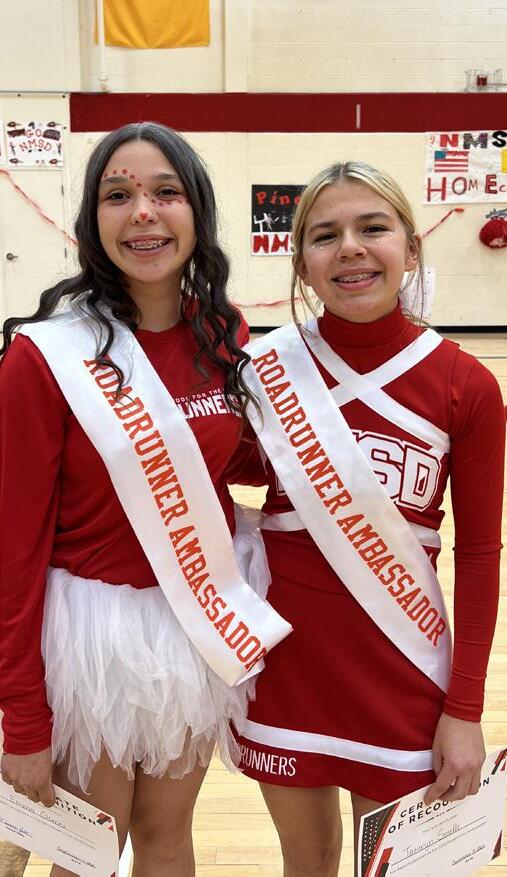
Freshmen Roadrunner Ambassadors
Lacey Gilpin & Kane Wilding
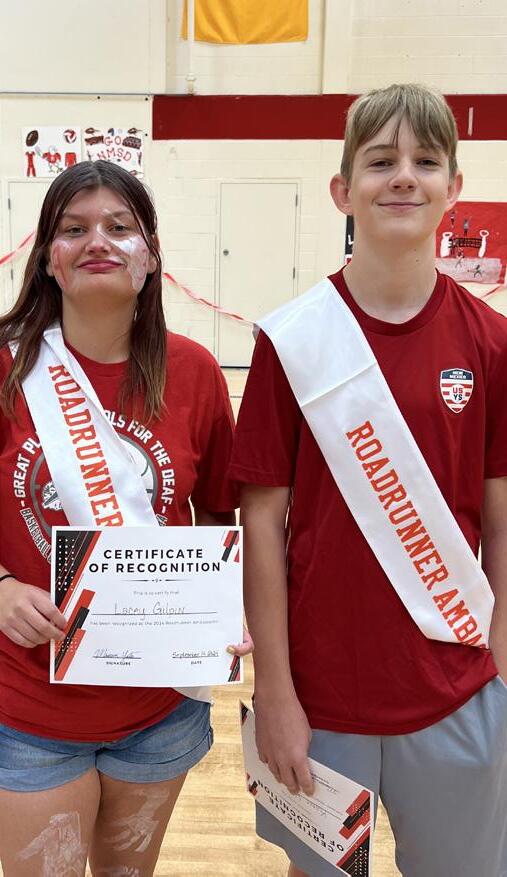
by Dean Krohn, Statewide ASL Program Coordinator
The Statewide Educational Outreach Team has made updates to our ASL Mentor Program. The program is an important service for Deaf/Hard of Hearing (D/HH) children, their families and school staff. We now have seven ASL Mentors who live in Farmington, Taos, Albuquerque, Santa Fe, and Lubbock, TX. ASL Mentors accrue many, many miles every year; covering as many locations as they can to support D/HH students statewide! What’s new?
• Formerly staff and contractors were called ASL Tutors. Now they're called ASL Mentors.
• The program has a mix of full-time staff, parttime staff, and contracted positions.
• Full/part-time ASL Mentors working in Santa Fe use state vehicles for traveling. ASL Mentors living outside the metro area receive mileage/ travel reimbursement and may become eligible for a state vehicle during their second year of service.
ASL Mentors support D/HH children and school communities (classmates, staff, ASL clubs, ASL classes, language support, etc.) ASL Mentors also provide regional community events 1 or 2 times per year. Mentors are collaborators, ASL teachers, role models and tutors. The program is thrilled to have expanded the ASL Mentor team!
• ASL Mentors, living in the Santa Fe/ Albuquerque area are based in the Santa Fe office. All other Mentors are based in their hometown communities.
Meet our ASL Mentors
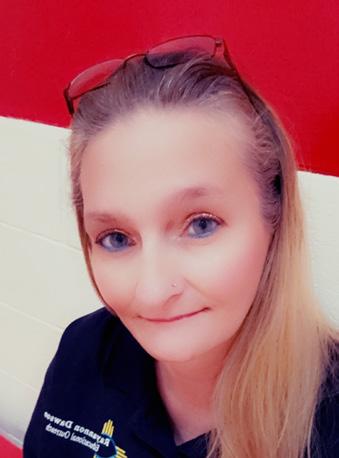
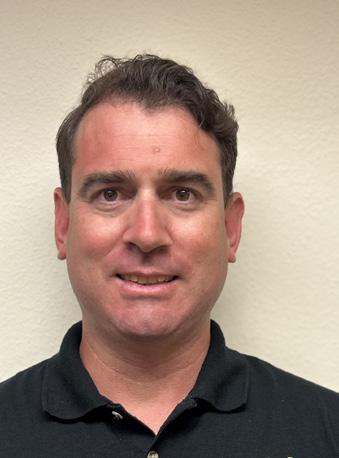
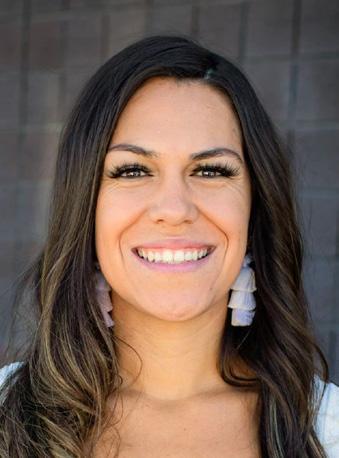
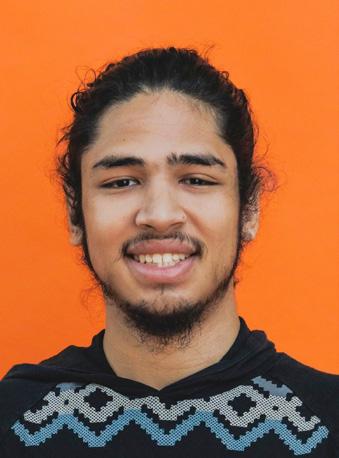
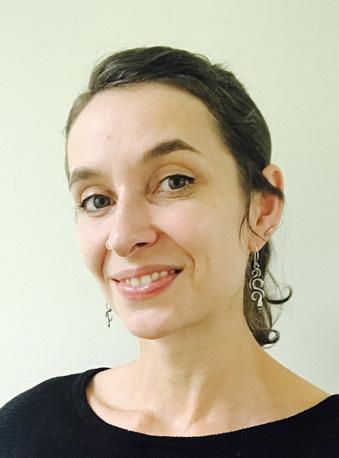
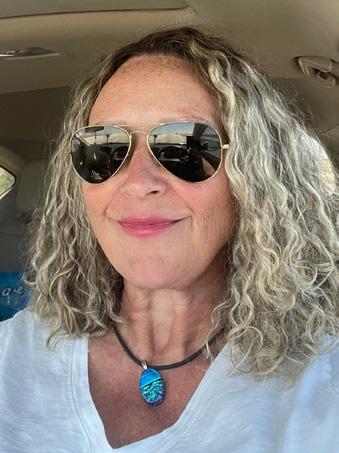
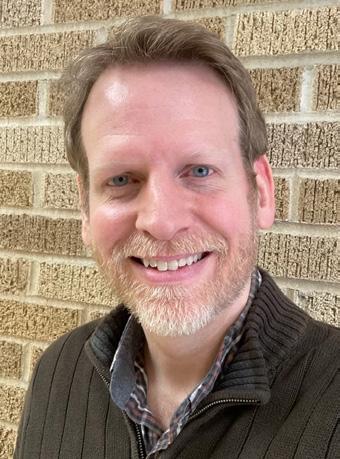
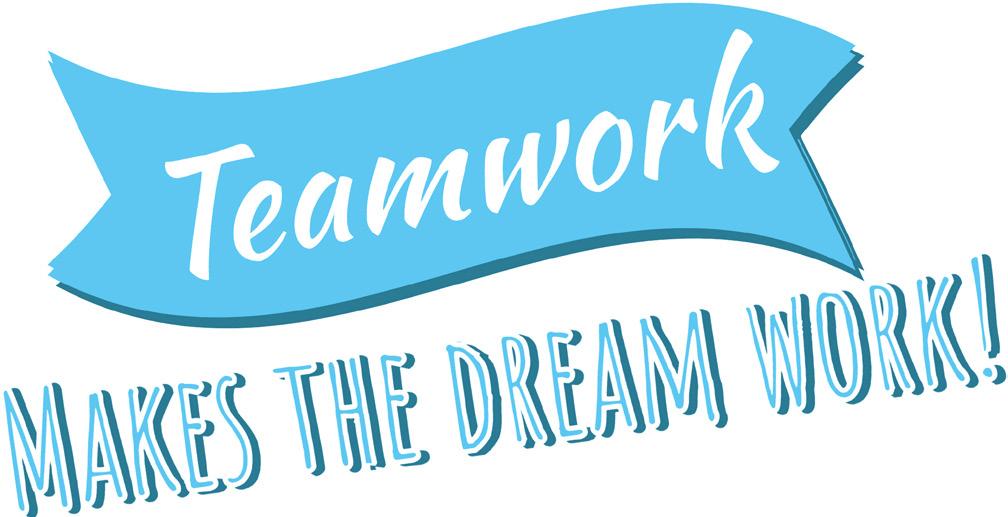

Many alums think of NMSD as their home away from home, and we hold our Alumni in an extraordinary place in our hearts. NMSD is where they grew up, gained an education,made life-long friends, and built happy memories. Below, Vergena Chee shares about her time as a student at NMSD and what she is currently up to.

I live in a rural area on the Navajo reservation and am from Pine Hill, NM. My clans are Tsénahabìłnii (sleeping rock), Dziłtaah Kinyaa’áanii (towering house clan), Haltsooí (Meadow people), and Táchii’ii (Red running into water people). In 2005, I finally enrolled at NMSD. Why did I say “finally?” Due to the fact that my parents were scared and worried because it was a few hours away from home and they were white people. The school was not the same as my old school. My parents took me to the NMSD twice, but they still refused to let me attend until Dr. Ronald Stern visited me when I was two years old. He tried to convince my parents to send me to school, but it did not work out. Two years later when I was four years old, his wife, Hedy, visited me. They were trying to convince my parents in some way. My parents were very stubborn but found out later that I was alone and the interpreter was quitting at my old school. They made the choice to send me to NMSD.
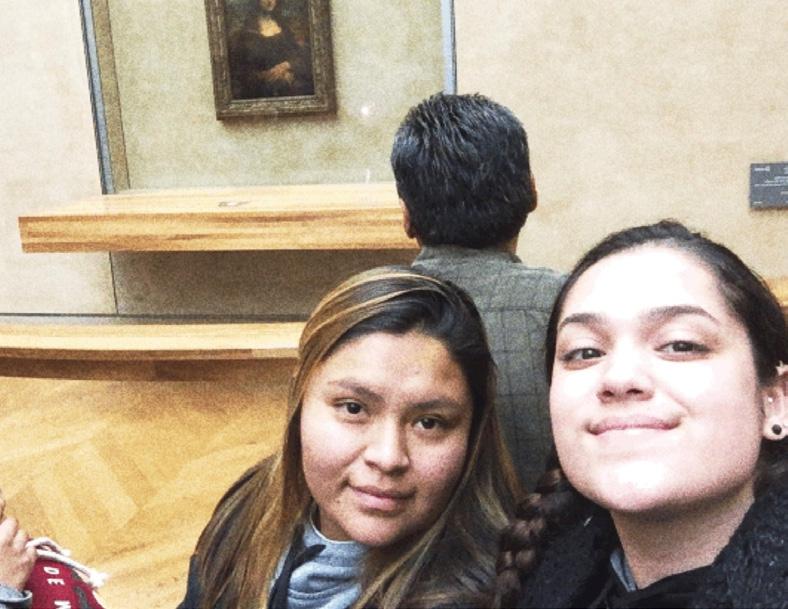
I had three besties. They were empathetic and supportive, always there for me whenever I needed to talk. We could discuss everything. They were patient listeners to my concerns and vents. When I first arrived, I was 7 years old and turned 8 a few weeks later. I was very shy and quiet, sometimes even scared to see people of different races because my hometown was mostly Native American. A. was very friendly and helpful. She was a good person, and made me want to be friends with her because I felt comfortable with her. She was my best friend until she moved away. I missed her often and thought about her a lot. We stayed in touch for a while, but eventually, we lost contact until we reconnected at Gallaudet. We are friends again now.
J. became my best friend after we met at NSMD summer camp in 2010. We loved to chatter every day, but we often got into trouble. We were in the same classes from middle through high school. J. was very talkative and a kind person.
When I was in the 8th grade and E. was in the 9th, Hedy introduced us at the cottages. Hedy was very excited and said, "I think she is a good person and very sweet. You will like her. You and she are going to be great friends." She then led me to meet E., and we were introduced. E. was so beautiful, wearing blue makeup and blue clothes, which made her look like a chola, as she sometimes mentioned to me. We became best friends. She was very kind, nice, funny, empathetic, and enthusiastic. In high school, when I was struggling with my mental health and made mistakes that caused me to lose my identity, she was there and supported me. She was always positive and caring, especially when I was overwhelmed with drama and ignored my friends. I later realized I was wrong for treating them badly because I wasn’t being myself. After she graduated, I focused on myself and put myself first. I’m glad we shared both good and bad memories.


I don’t know. Eh. History… Gary Hand was my favorite teacher because he was very patient to get me to completely understand and challenged me to learn more about the history. It was hard to understand at first because I needed to learn all the historical details and their effects on society today. When I was younger, Hedy used to take me to museums often, but I didn’t understand and didn’t want to go because it was boring. It wasn’t until later, when I fully understood the importance of history, that I became motivated to learn in history class and became grateful to Hedy.
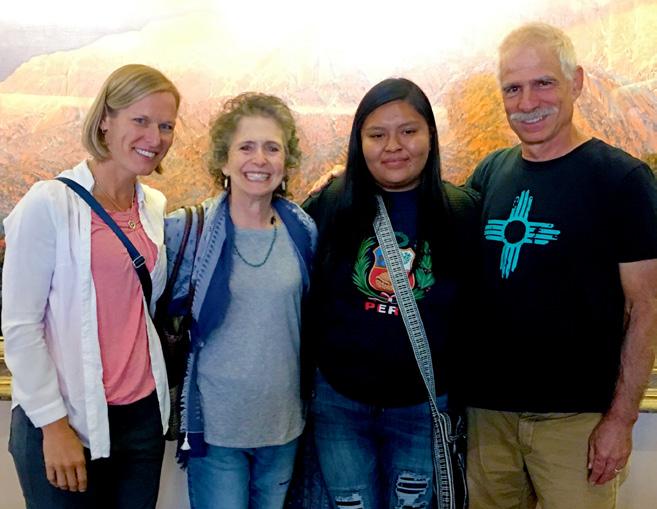
I am still grateful to Laurie Anderson for challenging and pushing me to better my reading and writing when I didn't believe in myself, knowing how difficult English was for me.
My favorite counselor was Jennifer Harrison because she was my rock and insisted that I go to the therapy workshop every Wednesday and see my therapist every Monday, even though I wasn't particularly into either of those things. Without her, I wouldn't be who I am now. For who I am, I am grateful to her.

I had many wonderful memories at NMSD. During the middle school year, I attended NM Trip for a week. Sports, clubs, friends, prom, international studies, and other activities were all things I participated in. And I would like to say that although I had to deal with my mental health for three years, therapy provided me with useful tools that I occasionally still use.
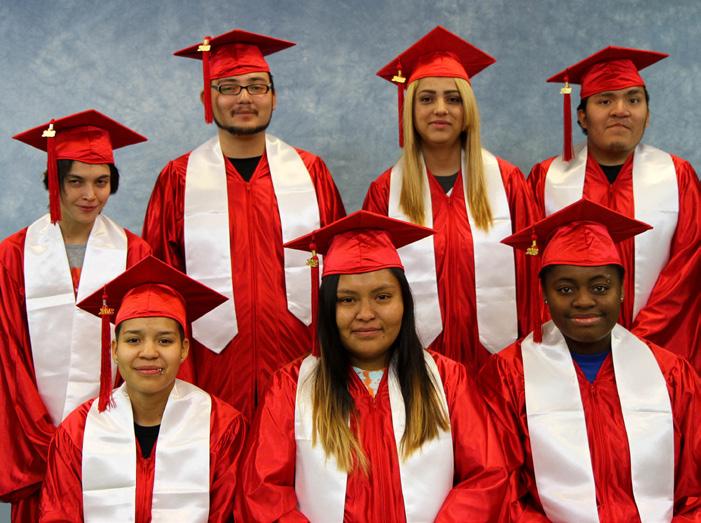
I graduated in 2018. I was so delighted to make the senior speech and wear my Navajo dress on that special day.

